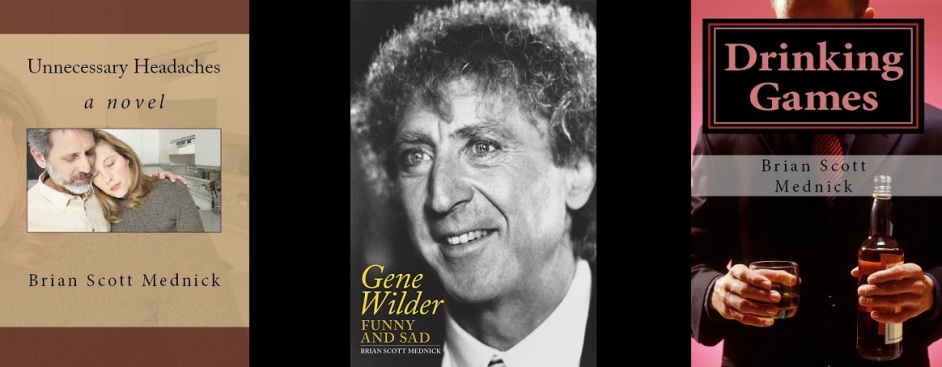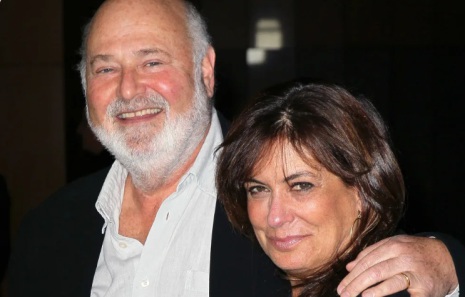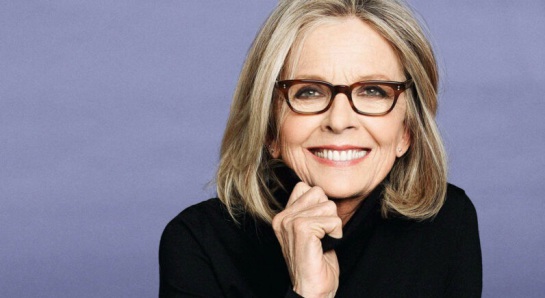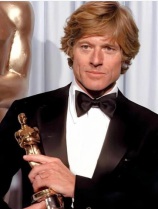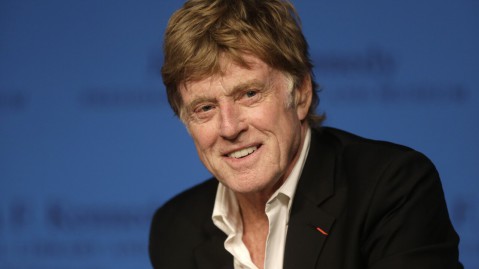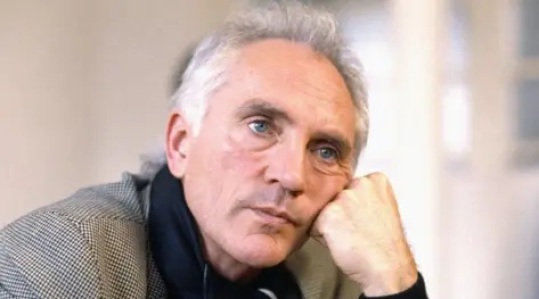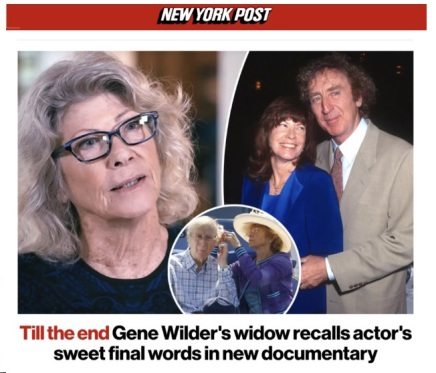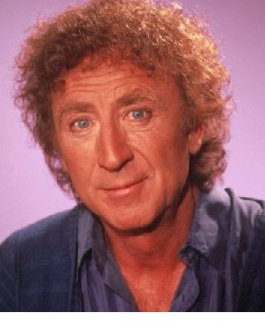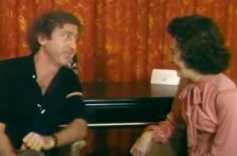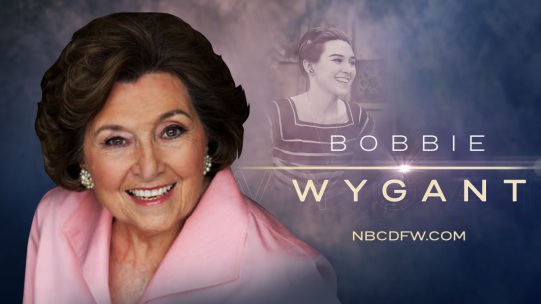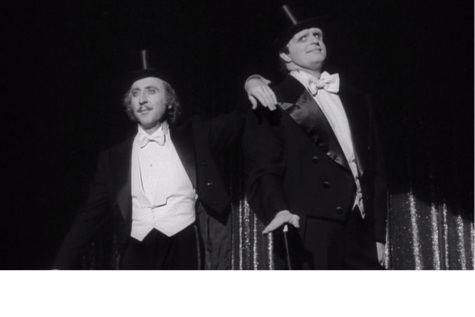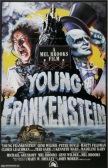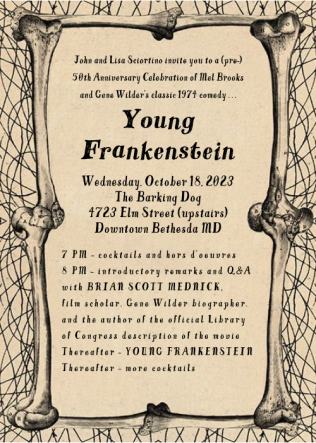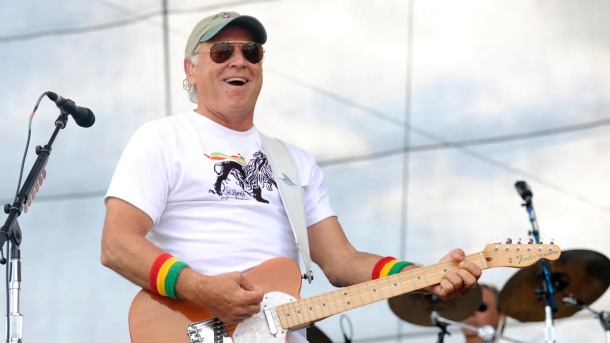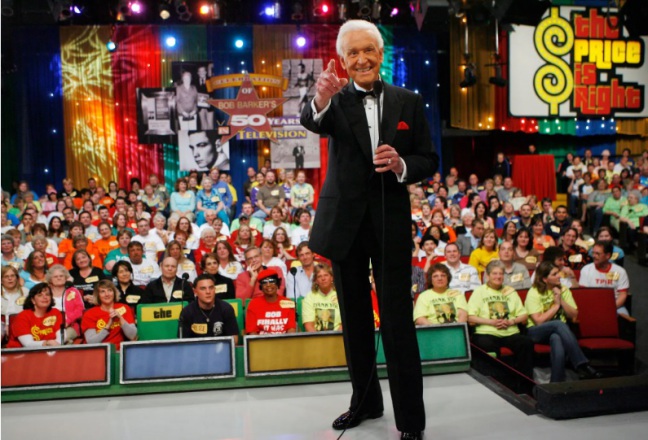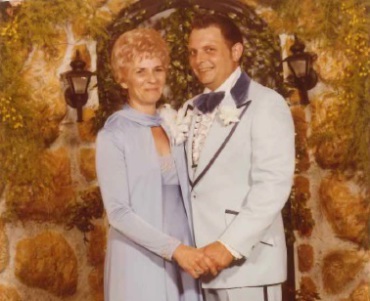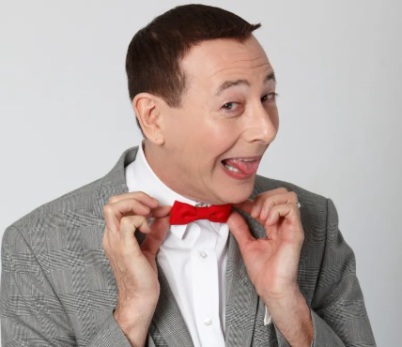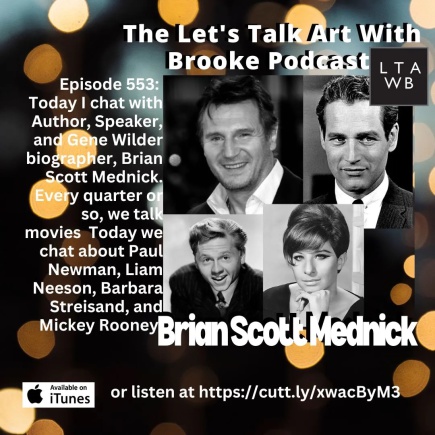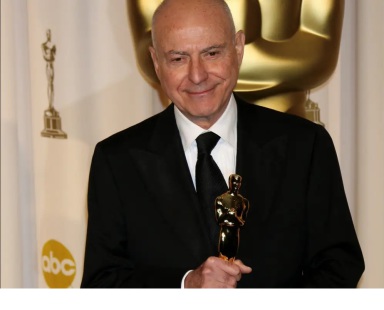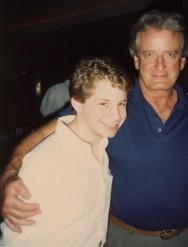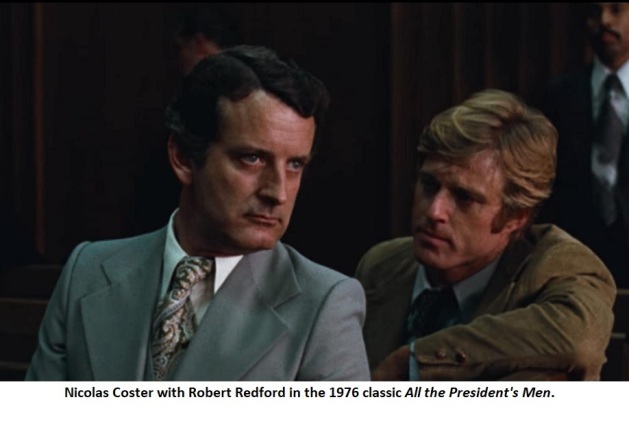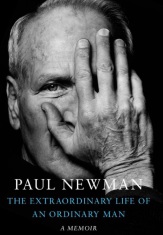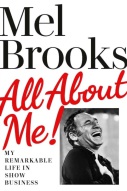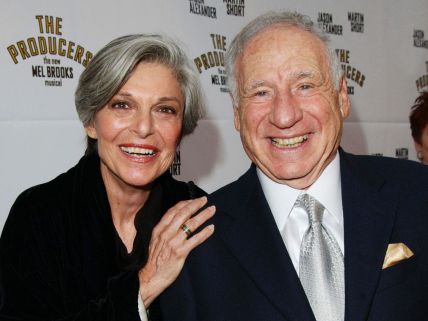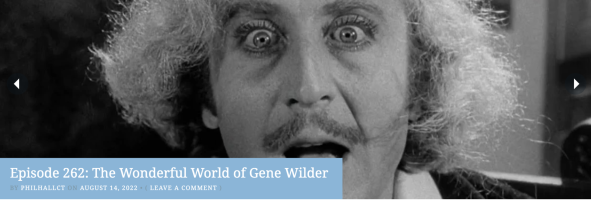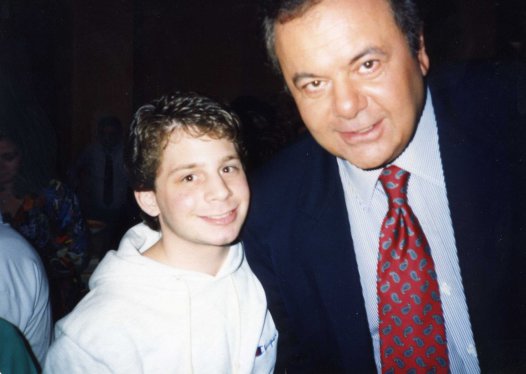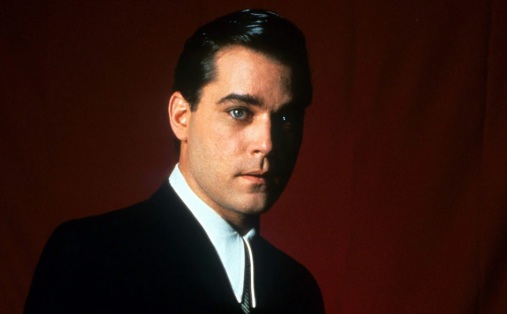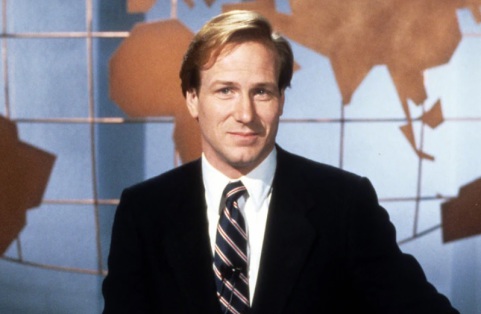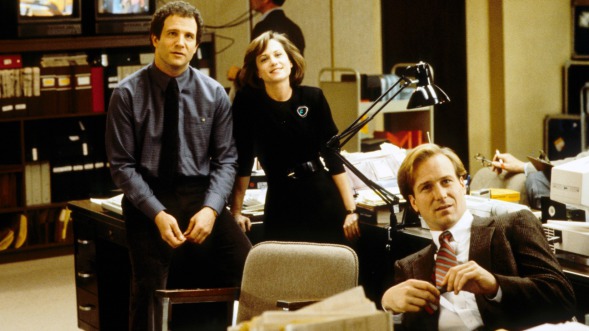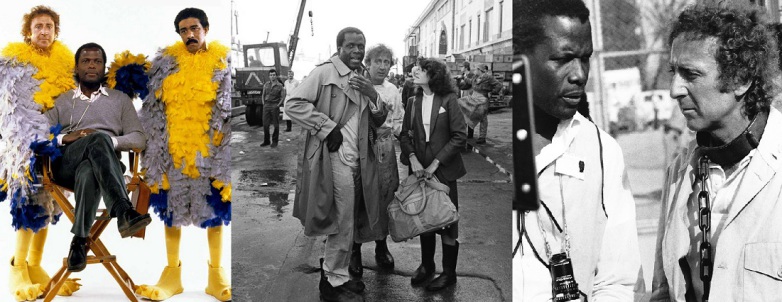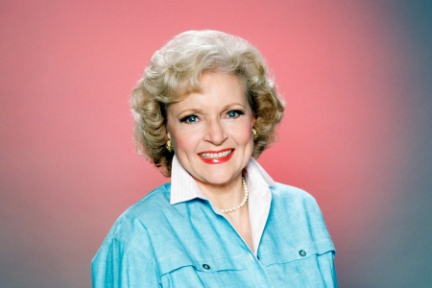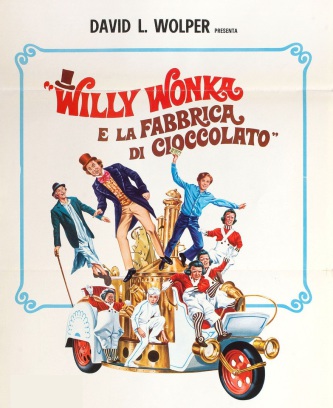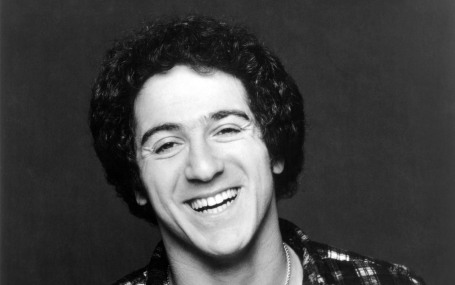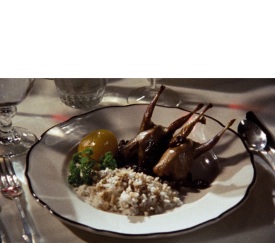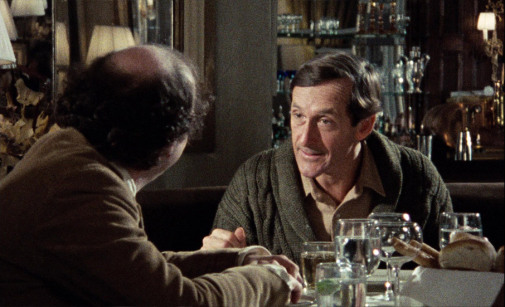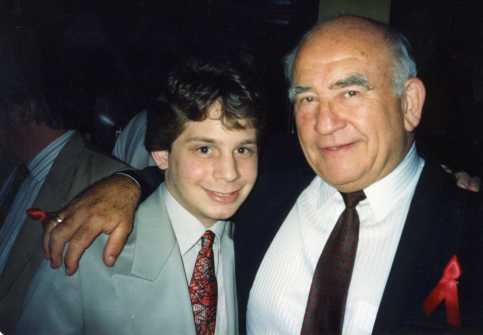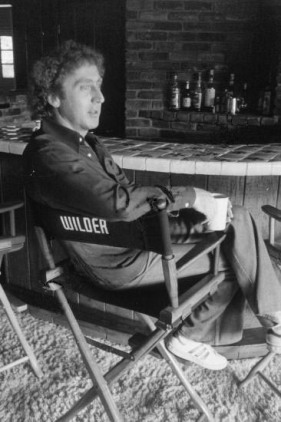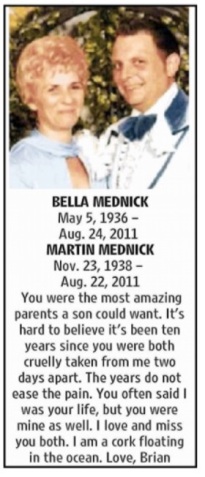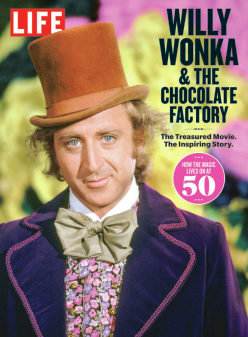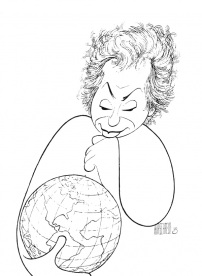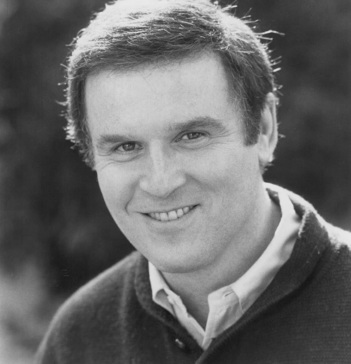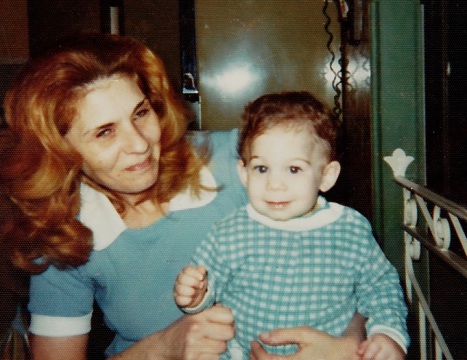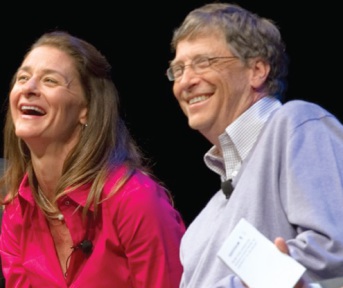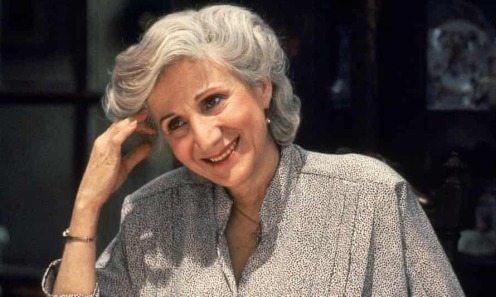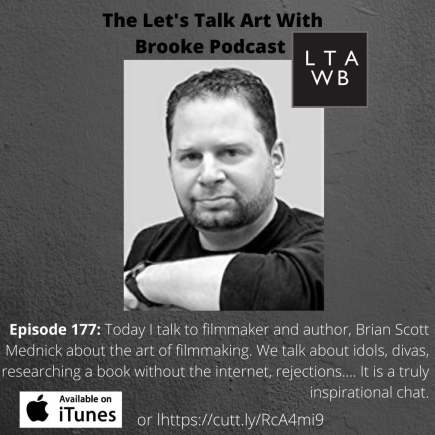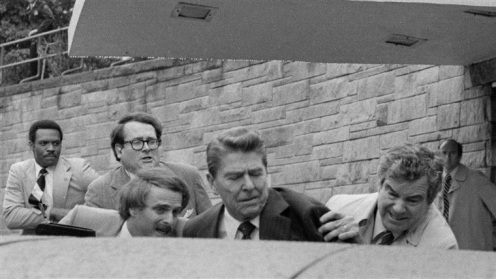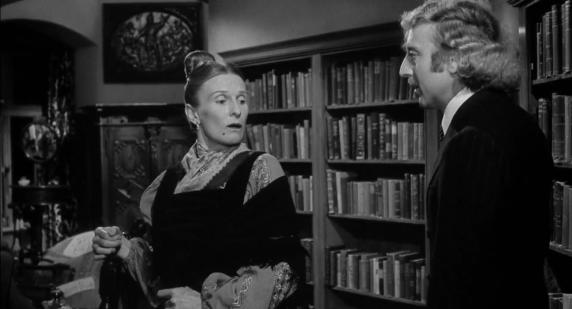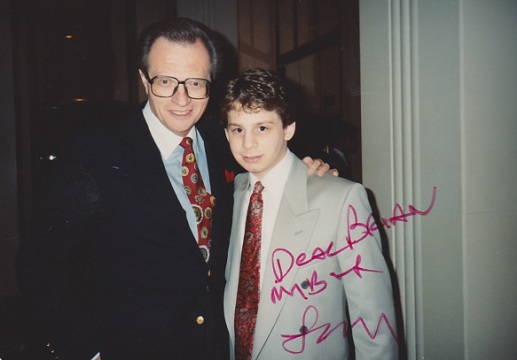Good Riddance, 2025!
December 31, 2025
This has been a year marked by tragedy, particularly in recent weeks. The Bondi Beach massacre, the Brown University shooting, and the unimaginable murders of Rob Reiner
and his wife Michele. Like many, I still am in shock about the Reiner murders, and have not been able to put thoughts and feelings to words, although I doubt I could be as eloquent as those who
personally knew them. By all accounts, they were kind, decent people.
I grew up with Rob Reiner like many of my generation - first as a brilliant comic actor on All in the Family and then his transformation into one of Hollywood's most dependable
directors. We probably all have a favorite Reiner film (mine is Stand by Me). He also never became irrelevant. At 78, slimmed down and youthful, he had never looked better. He was a
constant talk show presence. I had just watched him on Bill Maher's podcast and finally got around to his documentary about his childhood friend Albert Brooks.
The circumstances under which the Reiners died is a shock that will go down as one of Hollywood's greatest tragedies. One of the first things I thought was thank God his parents are not here to have
seen this. The Reiners died on the first night of Hanukkah. May their memories be a blessing. And may 2026 offer peace, health, and prosperity for all of us.
Sandwiches of History
November 7, 2025
Was thrilled and surprised to see my mother's breakfast sandwich featured on the super hot YouTube channel "Sandwiches of History." Host Barry Enderwick followed my
instructions to a tee and gave it a 7 out of 10 (an 8 when he added an egg, which I think is unnecessary). Was inredibly moved to see this pop up on YouTube today. My mother used to make this for me
all the time, and I make it myself still every now and then.
Thanks, Barry. Click here to watch.
Diane Keaton: 1946 - 2025
October 18, 2025
What shocking news to hear about the death of Diane Keaton, who we lost last week at age 79. This is such a shocker because she was so vibrant, and no one knew she was
sick. I read she died from pneumonia but I have a feeling she had an underlying condition, as a neighbor said she would leave her home every day to walk her dog and had not been seen for
months.
Keaton had as much influence on film in the last six decades as anyone I could think. From her eight films with Woody Allen to her role in all three Godfather movies to the light
comedies she made in later life. She was nominated for four Oscars, winning in 1977 for Allen's classic Annie Hall. Her favorite film of hers was Something's Gotta Give (2003), a thoroughly entertaining romantic comedy that paired her with Jack Nicholson for the second time (they were previously in Warren Beatty's
1981 epic Reds).
Keaton was always a delight on talk shows, where her insecurity was absolutely charming. I am particularly fond of an early 1970s appearance with Johnny Carson in which she proved to be a pretty amazing singer (I think
Annie Hall was intentionally supposed to be just an okay singer). Her later talk show
appearances showed her a lot more confident and well-spoken, but still
delightful.
Woody Allen was reportedly "distraught: over her death," writing in The Free Press, "A few days ago the world was a place that included Diane Keaton. Now it’s a world that does not. Hence, it’s a drearier world. Still, there are her
movies. And her great laugh still echoes in my head."
Keaton never married, although she was romantically involved with Allen, Al Pacino, and Warren Beatty. She is survived by her daughter Dexter, 29, and son Dexter, 25, as well as millions of very sad
fans.
Robert Redford: 1936 - 2025
September 23, 2025
The word legend is thrown around very casually, but last week we lost the very definition of one. Robert Redford, whose career as an actor, director, and environmental activist spanned six decades, died in his sleep on September 16th at age 89. Redford died at home at his Utah ranch, a property he had since the early '60s that was his solace away from the noise and lights of Hollywood.
Redford dominated the box office in the 1970s in such classics as The Candidate (1972), The Sting (1973), Three Days of the Condor (1975), and All the President's Men (1976). He made a total of seven films with his good friend, director Sydney Pollack. His good looks would sometimes overshadow his
talent, but make no mistake, he was more than just a pretty face.
His biggest achievement was actually behind the camera, making his directorial debut with 1980's Ordinary People. Based on the Judith Guest novel (he bought the film rights before the novel was even published), it told the story
of an upper middle class WASP family in crisis after the death of their oldest son in a boating accident. Timothy Hutton became a star as the tortured younger brother, Donald Sutherland gave probably
his best performance, and Mary Tyler Moore was a revelation as a cold mother
that was a shocking departure from her warm, comedic TV persona. The film won four Academy Awards, including Best Picture and Best Director for Redford (his only
competitive Oscar). In 2002, he received an honorary
Oscar.
Redford continued acting and directing into the 1990s and beyond, and became known to younger audiences as Alexander Pierce in Captain America: The Winter Soldier (2014) and Avengers: End Game (2019), films he claimed to make to satisfy his grandchildren. In 2017, he reunited with frequent leading lady Jane Fonda for the Netflix film Our Souls at Night.
In addition to his own film legacy, Redford will also be known for founding the Sundance Institute, which helped promote independent film and bolster the careers of some of today's most prominent filmmakers.
Redford was the very epitome of a movie star, especially when you look at these nobodies today who pass for talent. Also, unlike a peer of his who I shall leave nameless (think salad dressing), I never heard an unkind word about him. In fact, I cannot remember the last time an actor of his magnitude passed that had so many glowing remembrances, from the major news outlets to friends and colleagues writing long, loving posts on social media. Everyone loved him - and I admire him even more for being that rarity among big stars: a genuine and decent human being. RIP Bob.
Terence Stamp: 1938 - 2025
August 17, 2025
This sucks. Terence Stamp, a beloved British actor with enormous range and nuance, has died at 87.
When I was in college, I interned at Gramercy Pictures, who had released The Adventures of Priscilla, Queen of the Desert (1994). Terence was having drinks with some of the executives at a hotel nearby. He wanted a VHS copy of the film (this shows how long ago this was). My supervisor was going to send
someone else to bring it but I said I would. I gave him the tape, and they were nice enough to ask me to join them. I had an iced tea and we all chatted for a good half hour before leaving. As we
left the bar, several people murmured they knew who Terence was. I told him and he was amused.
Stamp's breakthrough was in his film debut in Peter Ustinov's film adaptation of Herman Melville's Billy Budd (1962). The film earned him a supporting actor
Oscar nomination and a Golden Globe Award for Most Promising Newcomer - Male. His career became spotty in the late '60s and '70s. “It’s a mystery to me,” he told The Guardian. "I was in my prime. When the 1960s ended, I just ended with it.”
In addition to Priscilla, which earned him BAFTA and Golden Globe nominations, Stamp will perhaps be best remembered as a
villian for his role of General Zod in Superman (1978) and Superman
II (1982). Other notable film roles include The Limey (1999), Star Wars: Episode I – The Phantom Menace (1999), My Wife Is an Actress (2001), and Big
Eyes (2014).
Great actor, humble, nice man.
A Little Shop Talk
August 6, 2025
Did this podcast with Brooke Musterman a while back (I thought it might have ended up in Al Capone's vault), but Brooke posted it today.
We discuss the classic 1986 film Little Shop of Horrors, as well as honorary Oscar hits and misses, the death of Paul Reubens, and, as always, celebrities who aren't so nice. Thanks, Brooke! Always great fun chatting with
you.
Click here
to listen.
"Nostalgia Tonight with Joe Sibilia"
August 4, 2025
Big thank you to Joe Sibilia for having me on his radio show "Nostalgia Tonight" on AM970 The Answer last night. Joe is only 29 and years ahead of himself,
a true lover and historian of show business. He reminds me of a more successful version of myself. Congrats on the great work, Joe! Was a pleasure being on your show. Click here to listen.
The Best Movies of the Last 25 Years
July 29, 2025
The New York Times recently did a fascinating poll in which they had over 500 prominent actors, directors, and other know-it-alls give their picks for the best films of the 21st Century so far. I was convinced what No. 1 had to be, and not only was I right, it was also the choice of Times readers in a follow-up poll. It is without question my favorite film from this period, and it is inching extremely close to cracking my top ten of all time (but what do I throw off?).
The film is Bong Joon Ho's Parasite, the exhilarating 2019 South Korean film that is a comedy of manners, a social commentary, a family drama, and a bloody horror film. To combine so many genres so smoothly into one film that is also elegant, smart, and downright fun is a masterful achievement.
Parasite tells the story of a dirt-poor family of four, the Kims, who one by one manage to manipulate themselves into the lives of the uber rich Park family, each deceiving them to hire them to tutor their children, chauffeur them around, and, in the most dastardly move, replace their housekeeper. They never let on they are all related.
I first saw Parasite on a plane! I fell in love with it immediately. When I bought the DVD, I was really able to fully appreciate the visual beauty of the film, both in the slick cinematography of Hong Kyung-pyo and the stunning production design by Lee Ha-jun and Cho Won-woo. Lee and Cho make the sleek and modern Park house, which in the world of the film was designed by a fictional architect named Namgoong Hyeonja, an actual character, as pivotal to the story as both families. According to Indiewire, Bong's challenge "was not only to create a believably 'visually beautiful' set, but a stage that served the precise needs of his camera, compositions, and characters, while embodying his film’s rich themes."
The actors are all first-rate. They are all given roles of characters that are hard to like, but between the spoiled haves and the conniving have-nots, they all have an oddly smarmy charm.
The film's third act is a bloody doozy (literally), but I won't say more for the four people out there who have yet to see it, including a friend of mine who refuses to watch subtitled movies. I told him I would explain the film to him, and even stressed that the story is so compelling, you don't even need to understand the dialogue.
Parasite is one of a handful of films I watch every few months or so. It is the first foreign film to win the Best Picture Oscar, a huge achievement considering the questionable taste of the Academy in recent years. (It lost the art direction Oscar to Once Upon a Time... in Hollywood, which had amazing production design, but the Parasite house alone was enough for me to edge it out.)
While I still consider the 1970s and 1980s to be the last Golden Ages of cinema, I was surprised how many great films were actually made in the last 25 years, although most were from the aughts. Close runners-up are The Holdovers (2023), L.I.E. (2001), and Brokeback Mountain (2005), with honorable mention, in no particular order, going to Chicago (2002), The Pianist (2002), Meet the Parents (2000), Y Tu Mama Tambien (2001), Latter Days (2003), Broadway: The Golden Age (2003), Sideways (2004), Capturing the Friedmans (2003), 25th Hour (2002), In the Bedroom (2001), A Beautiful Mind (2001), Boyhood (2013), Spotlight (2014), and Dinner Rush (2000).
Book Review: Fairyboy by Garrett Glaser
May 2, 2025
Most writers don’t read much, and when we do we tend to read non-fiction. I forget which famous writer said that people think authors with writer’s block dive deep into their souls for inspiration when in actuality we just play video games until an idea comes to us.
Well, the video games were put on hold last week when I devoured what is easily one of the most moving, beautifully written memoirs I have ever read. The book is called Fairyboy: Growing Up Gay and Out in Pre-Stonewall New York and Beyond by Garrett Glaser, an Emmy-winning news reporter who was a staple of New York local news when I was growing up in the 1980s. Best known as the strikingly handsome reporter for Channel 7 Eyewitness News and later Channel 4 in L.A., Glaser covered everything from hard-hitting news stories to entertainment with integrity, charisma, and flair. He was also one of the first broadcast journalists to come out as gay on-air during a story about the late AIDS activist Elizabeth Glaser (no relation). I tore through his book in just a few days, and honestly slowed down because I just didn't want it to end.
His fascinating memoir tells of his growing up in Manhattan in the 1960s as an unusually mature yet rambunctious Jewish boy who loved magic, was entranced by Liberace, got into Manhattan’s prestigious Dalton School, and with remarkable courage and self-assurance came out as gay to his parents at 14 years old!
Glaser’s writing is such that it reads like a great novel, reminiscent of the best work of Edmund White, David Leavitt, Philip Roth, and Pete Hamill in recalling a long-gone New York, the gay rights movement, horny adolescence, and the culture of the times. I especially was reminded of White's The Beautiful Room Is Empty and A Boy's Own Story.
It's refreshing to read someone's story who actually had a charmed life. There's no bitterness or self-pity. And why should there be? Glaser was blessed with wonderful parents and a wonderful stepfather. The world of pre- and post-Stonewall New York is seen through the eyes of this remarkable teenager who frequented Christopher Street and the then secretive bar scene while not even old enough to drink.
He quickly rose to the ranks of television journalism, traveling to different venues throughout the country to get his feet wet. One particular story really irked me as he recalls having lunch with reporter Greg Pelkot. Glaser overstepped his boundaries and hit on him, leaving the uptight Pelkot to overreact and later badmouth Glaser, something that would haunt him when he finally got his big gig at WABC in New York. Pelkot’s name sounded familiar so I looked him up, and it was not a shocker that, of course, he works for Fox (he belongs there!).
Growing up in New York in the 1980s, I was a news junkie even then, and I remember watching Glaser all the time. He spent several years in L.A. working on Entertainment Tonight but, despite watching it religiously in the 1980s, for some reason I don’t remember him on it. He interviewed almost everybody who was anybody, including Gene Wilder, Oprah, George H.W. Bush, George Clooney, Elizabeth Taylor, Robert De Niro, Cher – well, the list is too long.
Fairyboy is a book that captures a turbulent time seen through the eyes of an ambitious young man who felt he had to be his true self. Holden Caulfield had nothing on Garrett Glaser, who today is retired and happily living in San Diego with his partner of 25 years. He also happens to be as down to earth and nice as anyone I’ve encountered in the industry.
I really can’t remember the last time a book has had this much of an impact on me. Fairyboy is a wonderful achievement - mazel tov, Garrett! It’s available for purchase on Amazon.com in multiple formats. I sincerely urge you to check it out.
Podcast with John D. Healy
March 12, 2025
A big thank you to my friend John D. Healy for welcoming me on his podcast to discuss Gene Wilder: Funny and Sad and my other books. John is as Irish as a four-leaf clover so I am remiss not to have
mentioned Quackser Fortune Has a Cousin in the
Bronx, the wonderful 1970 film Gene shot in Dublin. Maybe next time. Click here to watch.
Gene Hackman: 1930 - 2025
February 28, 2025
What shocking news to wake up to yesterday as we learned that Gene Hackman and his wife and dog were found dead in their Santa Fe, New Mexico home. I think most of us figured it was carbon monoxide or a gas leak, then that was ruled out, although the deaths are considered "suspicious." As the day progressed, the details got even more bizarre as we learned their bodies were decomposing and starting to mummify, meaning they were dead for possibly weeks. Preliminary autopsy results released today determined Hackman's pacemaker stopped on February 17th, leading authorities to believe he was dead ten days before the bodies of him and his wife were found.
This is an incredibly sad ending to an amazing life, made even more frustrating by the fact Hackman turned 95 last month and, despite his frail appearance, was very active and in good health. He was often photographed around town driving and getting coffee.
Hackman won two Academy Awards - Best Actor in The French Connection (1971) and Best Supporting Actor in Unforgiven (1992) - and was without a
doubt of one Hollywood's greatest actors, in the same league as Nicholson, Hoffman, Pacino, and De Niro. Nearly all of the obits referred to him as an "Everyman." "Salt of the earth" is how Gene Siskel described
him.
Hackman appeared in several Broadway plays in the 1960s and appeared in small film roles starting in 1961. Perhaps his biggest break was being snubbed for a role. He was producer Sherwood Schwartz's
first choice to play Mike Brady on The Brady Bunch in 1969, but ABC executives were not thrilled about Hackman and cast Robert Reed, a lucky break for Hackman and moviegoers.
In the 1980s, every other film seemed to have Gene Hackman or Michael Caine in it, two actors known to never stop working. Even in small parts Hackman added something special to a film, such as in
Warren Beatty's Reds (1981) and Woody Allen's Another
Woman (1988).
Like all the truly great actors, Hackman could do intense drama as easily as breezy comedy. His role as an ultraconservative senator
in The Birdcage (1996) is one
of my favorite performances of his.
Hackman's last film was 2004's Welcome to Mooseport, a minor but likeable enough comedy co-starring Ray Romano.
Hackman and Gene Wilder became friends after doing Bonnie & Clyde (1967). One day they were playing tennis when Hackman asked Wilder what he was working on. He told
him about Young Frankenstein (1974). Hackman asked if there was something for him, a small part. And thus Hackman was cast as the Blind Hermit, in a scene-stealing cameo where he nearly kills the Monster (Peter Boyle)
with kindness. Hackman also joined Gene, Mel Brooks, Anne Bancroft, Carl and Estelle Reiner, Rob Reiner, and Penny Marshall on a trip to Venice with Merv Griffin for a celebrity tennis tournament in
the late 1970s.
It is interesting how similar Hackman and Wilder spent their retirement from acting. Both eschewed living in Hollywood. Wilder
lived in Stamford, Connecticut, and Hackman chose Santa Fe, New Mexico. Both turned to writing books and painting. Both avoided the spotlight and had doting, overprotective wives. The Hackmans
were reportedly very private people, hence the theory they remained dead for nearly two weeks. Wilder was intensely private but he and his wife had people coming in all the time. Karen
Wilder was close with her son and grandchildren, and Wilder has a nephew who he was always in touch with who was more like a son.
It will likely be weeks or even months before we know how the Hackmans actually died. And sadly the circumstances of Gene Hackman's death will now also be a part of his legacy, although he will always be remembered as a consummate actor and nice guy (I never heard a bad word about him). He is survived by a son and two daughters from his first marriage.
Tony Roberts: 1939 - 2025
February 10, 2025
Very sad to hear of the passing of Tony Roberts, one of Woody Allen’s most reliable supporting players who never let a friend down when they needed some sperm, who died on February 7th at his home in Manhattan. According to his daughter, Nicole Burley, the cause was lung cancer.
In a career that spanned more than 60 years, Roberts made a mark on stage, film, and television. He, Allen, and Diane Keaton appeared in Allen’s Broadway comedy Play It Again Sam in 1969, with all three reprising their roles for the 1972 film version. Roberts would appear in a total of six Woody Allen films, most notably as Allen’s best friend Rob in Annie Hall (1977), a hotshot Hollywood actor who was the total opposite of Allen’s nebbishy Alvy Singer. His other roles in Allen films were Stardust Memories (1980), A Midsummer Night’s Sex Comedy (1982), Radio Days (1987), and, especially memorable, Hannah and Her Sisters (1986) where he played Allen’s friend and writing partner who generously donates his sperm to Allen and wife Mia Farrow to father twins since Allen’s character was infertile.
Roberts was born David Anthony Roberts in Manhattan to Jewish parents, and knew from an early age he wanted to be an actor. He made his Broadway debut in the 1961 play Something About a Soldier. Other Broadway credits included replacing Robert Redford in Barefoot in the Park in 1965, replacing Robert Klein in They’re Playing Our Song in 1979, and originating the role of Toddy, Julie Andrews’ witty gay best friend, in the stage version of Victor/Victoria (1995) in the role played on film by Robert Preston.
I met Roberts on the street about 20 years ago. He seemed in a hurry but I stopped him and stuck out my hand but he said he could not shake it because he had an infection. Oh, well.
Roberts penned a memoir in 2015 called Do You Know Me? His daughter is his only immediate survivor.
Losing One's Parents Days Apart
December 14, 2024
My heart goes out to Conan O'Brien, who just lost his parents three days apart. I lost mine two days apart. I would like to say I win but
it is a horrible thing. His parents
were 92 and 95. Mine were 72 and 75. They died too young and I had no one to help me. I had no money. They were kept frozen while I negotiated how to bury
them. I realized my "friends" were horrible phonies. They disappeared when I needed them most - and good riddance. Conan has a wife, children, money, fame, and the wonderful gift that his parents saw
him become a huge success. They lived long and fulfilling lives. I wish him and his family well.
Mourning in America
November 6, 2024
Shame on you, America! You had a chance to make a real change but instead chose to put a felon back into the highest seat in the land. The world is laughing at us. I am embarrassed by the uneducated, bigoted hillbillies who made this happen. This is not the America I grew up in. Now I need to find a country that has a language I could easily learn and has a decent Chinese restaurant that delivers. Any suggestions are appreciated.
Kamala, Of Course!
November 2, 2024
I've followed politics from as early as I can remember. Growing up, Ronald Reagan was my president, Mario Cuomo was my governor, Ed Koch was my mayor, and Johnny Carson and David Letterman were my talk show hosts. It was a wonderful time.
As I got a little older, Bill Clinton was my president, George Pataki was my governor, Rudy Giuliani was my mayor, and Jay Leno and David Letterman were my talk show hosts. It was a pretty good time.
In a few days, we will choose to make a tremendous leap forward as a country or take a bleak step back. I am cautiously optimistic. I have to be - I have no fingernails left. Kamala Harris is the leader we need. I am proud to have voted for her.
Phil Donahue: 1935 - 2024
September 26, 2024
I normally would have written about the passing of Phil Donahue, who died on August 18th, right after his death but the announcement of his death was on the same day it was revealed my dear friend John Aprea had died on August 5th. I'll keep this pithy as I had written a tribute to Phil when he
was alive that you can read on the Archive 1 tab (scroll down to the 05.18.15 entry). Phil died at age 88 at his home in Manhattan after a long
illness, according to a family spokesperson.
Donahue was honored at the White House earlier this year with the Presidential Medal of Freedom. His appearance alarmed me as he was wheelchair bound and extremely
frail. He was obviously unwell.
Donahue was one of television's great pioneers, the father of the daytime talk show where the audience was a crucial part of the show. I went to several tapings of his show in New York, and Phil was
always warm, funny, and real. What you saw on TV was what he was like in person.
Thoughts go out to Marlo and his three surviving sons and daughter (his youngest son James died suddenly in 2014).
John Aprea: 1941 - 2024
August 19, 2024
I am heartbroken to hear my old friend John Aprea died on August 5th. He was 83 and died at his home in L.A. of natural causes “surrounded by his loved ones," according to his manager, Will Levine.
I met John when I was 17 years old and producing a radio show where we interviewed soap stars. I had known him from Knots Landing. I met him at a swanky holiday party and we hit it off. He was a frequent guest on the show and we also hung out, including one memorable trip to a Chinese restaurant in Flushing, Queens, where I tried abalone for the first - and last! - time.
He did me a huge favor by starring in my first short film, Confessions of a Male Prostitute. Technically he needed a waiver from SAG since this was a low-budget, totally
indie project but he didn't care. He was magnificent. I was still in my first year at NYU and he came to my dorm to to a read-through of the script. I remember how excited my roommates
were to meet him (“Back off, he’s mine!” I thought).
John was probably best known as Young Tessio in The Godfather Part II (1974), as well as the grandfather on Full House. He also appeared in The
Idolmaker (1980), New Jack City (1991), and the 2004 remake of The Manchurian Candidate. He had the leading role in the 2015 independent film Sharkskin, which I hate
to admit I have never seen (but will be watching this weekend). He was also a regular on the 1980s action series Matt Houston.
I used to visit the Another World studio in Brooklyn a lot. I was with John and Linda Dano when they got married on the
show. My mother met John several times. He and Linda were on John’s last radio show with us (he decided to leave Another World to move to L.A. and pursue film work). We taped the
show in the Crown-Plaza Hotel in Midtown. We all had dinner (we all ordered terrific steak) first, then went to a restaurant on the other side of the hotel that was only open for breakfast. I didn’t
host the show, but I came on at the end to say some words to John and read him a poem I wrote for him. I ended with, “I know John will do great in Hollywood because he works and he strives, And
if things don’t work out, there’s always Days of Our Lives.” I then told him that I loved him and will miss him. We then went back to the restaurant we had dinner at to have a
cake my mother and I bought him. We had written on it, "Good-bye John and Lucas [his character on the show]. We'll miss you both."
Sadly I lost touch with John when he moved to L.A. (he was originally from New Jersey). I tried twice to email his agent but got no reply. The last time was last year actually and the email bounced back. I wish I tried harder and sooner. This really hurts. He was as nice, down to earth, and funny as anyone I have ever known. He was movie star handsome, a great dresser, a true mensch who I looked up to and admired. I am close to tears as I write this. RIP, my friend. I love and miss you.
Gena Rowlands: 1930 – 2024
August 16, 2024
The incandescent Gena Rowlands, one of the screen’s great beauties and most intense actresses, died on Thursday at age 94 at her home in Indian Wells, Calif. Her death was confirmed by a rep for her son Nick Cassavetes. Although no cause was given, Nick had revealed in June that Rowlands had been suffering from Alzheimer’s Disease for the past five years.
In a career that spanned seven decades, Rowlands’ most notable work was in the films she made with her husband, the great John Cassevetes. She was nominated for Oscars for two of his films, A Woman Under the Influence (1974) and Gloria (1980). In the former, she tore up the screen as Mabel Longhetti, a mentally unwell woman whose husband Nick (Peter Falk) is a construction foreman. The film opens with Nick having to inform Mabel that he can’t keep their scheduled “date night” (she had brought their kids to stay with her mother) because a burst pipe requires him to work overtime through the early morning hours. Mabel wanders the streets, eventually winding up in a dive bar where she lets a creep buy her copious amounts of Seagram’s 7 (hold the other 7) before she brings home with her. The next morning Nick brings all of his co-workers home where they have the strangest breakfast of spaghetti, wine, and beer. Mabel’s gradual breakdown is a searing piece of acting, and won Rowlands the first of two Golden Globe Awards (the other was for her lead in the 1987 TV-movie The Betty Ford Story, for which she also won an Emmy).
Opening Night (1977) is probably my favorite Gena Rowlands performance. Cassavetes also stars in this one along with Ben Gazzara, Joan Blondell, Paul Stewart, and Zohra Lampert. The film never received a proper release and played briefly in L.A. and New York without attracting audiences. It wasn’t until 1991, two years after Cassavetes’ death, that the film was picked up by an American distributor. It still remained largely unseen until it became available on home video. It’s one of Cassavetes’ very best films, a fascinating study of an actress getting on in years who is struggling with the tryout of a new play in New Haven, Conn.
Her last film with Cassavetes was his final one, 1984's Love Streams in which they played very screwed up siblings. Cassavetes died in 1989 from cirrhosis after many years of excessive drinking. He was only 59.
As for films she made with other directors, her standout is Woody Allen’s Another Woman (1988), a cerebral drama where Rowlands plays a Manhattan college professor who rents a small office to work on a book she’s writing. Through a ventilation grate, she can hear the conversations of a psychiatrist’s office next door. She tries not to eavesdrop but can’t help herself when she hears the confessions of a young pregnant woman (Mia Farrow) which forces her to reevaluate her life and the choices she made over the years. It’s a restrained, elegant performance, the polar opposite of the unstable characters Cassavetes wrote for her.
On television, she and Ben Gazzara played the parents of a young man with AIDS (Adain Quinn) in the landmark 1985 TV-movie An Early Frost, which was the first mainstream film to deal with the subject of AIDS.
Younger audiences got to know Rowlands for her performance in The Notebook (1996), in which she played a woman with Alzheimer’s. The film was directed by her son Nick. "I got my mom to play older Allie, and we spent a lot of time talking about Alzheimer's and wanting to be authentic with it, and now, for the last five years, she's had Alzheimer's," Nick told Entertainment Weekly this past June. "She's in full dementia. And it's so crazy — we lived it, she acted it, and now it's on us." (Rowlands’ mother, Lady Rowlands, who appeared in several of John Cassavetes’ films, also had the disease.)
Rowlands received a much overdue honorary Oscar in 2015, and it was extremely touching to see her son present it to her. She remarried in 2012 to retired businessman Robert Forrest. In addition to Nick, he survives her along with her other children with Cassavetes, Alexandra and Zoe, both actresses and filmmakers as well.
The Woman in Red: 40 Years Later
August 15, 2024
None of us are getting younger. Hard to believe 40 years ago today Gene Wilder’s The Woman in Red opened. It was his third (and a half) film as actor-writer-director and the second of three films he did with Gilda.
I remember my mother taking me to see it when I was 11 years old (and seeing Kelly LeBrock naked had huge impact on my development). It’s a very funny film that all these years later still holds up. Sadly, many of the cast members are no longer with us: Gene, Gilda, Charles Grodin, and Joe Bologna.
In recognition of the film’s milestone anniversary, here is an excerpt from Gene Wilder: Funny and Sad about The Woman in Red:
For Gilda, her goal was to convince Gene to settle down and marry her. “Gene built a tennis court and a wine cellar in her
Connecticut house,” said Gilda’s friend Pat O’Donoghue. “That made her a lot less insecure. It was sort of like an engagement ring. For a brief moment there, she was truly, finally
happy.” Having been married and divorced twice already, Gene was in no hurry to walk down the aisle again. In her autobiography, Gilda wrote, “My new ‘career’ became getting him to marry
me. I turned down job offers so I could be geographically available. More often than not, I had on a white, frilly apron like Katharine Hepburn in Woman of the Year when she left her job
to exclusively be Spencer Tracey’s [sic] wife. Unfortunately, my performing ego wasn’t completely content in an apron, and in every screenplay Gene was writing, or project he had under
development, I finagled my way into a part.”
Gilda’s finagling worked, for she found herself with a part in Gene’s next film, The Woman in Red. Victor Drai, a first-time producer who had done everything from designing
clothes to selling real estate (and is now a nightclub impresario who is opening his own Vegas hotel in 2012), had bought the rights to a 1977 French film called Pardon Mon
Affaire. Drai thought Gene would be ideal for the American version as a mild-mannered family man looking for a little adventure in his life. He knew Gene’s agent, and soon Gene and
Gilda found themselves having a series of dinners at the home of Drai and his live-in girlfriend Kelly LeBrock.
Gene had doubts about Americanizing Pardon Mon Affaire. “He believed that he really didn’t want to do a remake because he figured the original was so good and it’s really a
discredit to the original when you do one again,” said cinematographer Fred Schuler. But Gene soon realized that a remake could stand on its own terms, and he ended up writing the screenplay
adaptation and directing as well.
In the film, Gene plays Teddy Pierce, a shy, quiet advertising executive living in San Francisco. One day Teddy is in the parking
garage of the building he works in and notices a beautiful young woman in a red dress. As she walks over a ventilation grate, her dress flies up à la Marilyn Monroe. From this moment on,
Teddy becomes obsessed with pursuing this mysterious woman in red as he lies to his wife and children.
For the supporting cast, Gene assembled his old friends Charles Grodin, Joseph Bologna, and Michael Huddleston to play his male buddies who
cover for him. For the title role, both Gene and Gilda thought Kelly LeBrock would be perfect. LeBrock, who was a 23-year-old model with no prior film experience, was terrified about
starring in a movie, but after enough convincing, LeBrock agreed to do a screen test for Orion Pictures and soon found herself with her first film role. She found the entire experience to be
very positive.
"Gene was wonderful," LeBrock said. "He was very busy but he still made time for me... The set was one of the nicest sets I’ve
ever been on... I still hope I will find the same feeling that I had on that set. It was a family. We had a great time... There was only tension on the set one day, and that
was the scene of going over the [ventilation grate]. Everyone knew it was kind of an important scene to the film, and everybody sort of got a little bit uptight. They just wanted it to be
really good, and sometimes when you’re on a set people get nervous off each other.
"Gene never raised his voice, he was never out of line or anything...but you could feel the tension. It was difficult because they were trying to get the dress to blow up, and it wasn’t working well, and they had to change the tactic. They had to keep trying the dryers in different positions and all. And time is money on a set, and it wasn’t a big budget film."
Gilda played Ms. Milner (though, as Gilda pointed out to David Letterman when promoting the film, her name is never mentioned), a hideous woman who works in Teddy's office who thinks Teddy is really interested in her. Some critics were baffled as to why Gene would cast Gilda in such an unattractive role with not a lot of screen time. "She looks like a ghost in this movie," said Gene Siskel. "She does nothing funny." Despite such criticism, Gilda won the Best Supporting Actress award from the now defunct Your Choice for the Film Awards, an awards program whose nominees were voted on by a panel of film critics and whose winners were chosen by the public. Gilda beat out fellow nominees Peggy Ashcroft (A Passage to India), Christine Lahti (Swing Shift), Geraldine Page (The Pope of Greenwich Village), and Theresa Russell (The Razor’s Edge).
To write the songs for The Woman in Red, Gene acquired the talents of Stevie Wonder. Wonder’s songs resulted in a hugely successful soundtrack album, and his "I Just Called to Say I Love You" went on to win both an Oscar and Golden Globe for Best Original Song. In his Oscar acceptance speech, Wonder thanked Gene and dedicated the award to Nelson Mandela, who was still in prison at the time, which resulted in Wonder’s music being banned by the South African Broadcasting Corporation.
The Woman in Red opened on August 15, 1984. It was one of the first films to receive the new PG-13 rating from the MPAA, the
first being Red Dawn, which opened a week earlier (Dreamscape, which opened the same day as The Woman in Red, also received the PG-13 rating). It did respectable
business at the box office and received mixed reviews. On the positive side, Leonard Maltin called it "Wilder’s best film in years," while Time magazine’s Richard Schickel found it "a well-made
sex farce of classical proportions" and "the summer's first comedy for adults." Janet Maslin of The New York Times wrote, "Mr. Wilder, who has improved greatly as a director, has also written
the screenplay, and does it with an eye to everyone’s sympathetic foibles... Whether Teddy is taking up horseback riding to impress Charlotte or turning instant hipster with a silly new suit
and hairdo, Mr. Wilder manages to make him reasonably likable." Pat Collins proclaimed The Woman in Red the "best romantic comedy of the summer" and found Gene to be "at his
irrepressible best."
A Shonda
August 6, 2024
At shortly after 9:00 a.m. EST today I officially plotzed.
Josh My Gosh
August 3, 2024
I will plotz if Pennsylvania Gov. Josh Shapiro is not the VP nominee! I don't want him because he is Jewish (although it would be a wonderful step forward for this
country), but because he is charismatic, smart, and eloquent. Politics is about image. He looks great, projects confidence, and he will turn JD "Call Me Vivian" Vance into hillbilly chopped
meat. Harris-Shapiro may sound like a good name for a law firm, but it's our best hope of preventing Donald Trump from ever getting his scrawny little finger on that red Diet Coke button on the
Resolute desk.
Bob Newhart: 1929 - 2024
July 19, 2024
Very sad to hearing of the passing of Bob Newhart, a truly innovative comedian and actor, who died yesterday at age 94. He was, of course, best known for his two classic sitcoms, The Bob Newhart Show and Newhart, but his stand-up routines were truly special. Phone calls where he was pretending to talk to others were genius. He was also a reliable talk show guest, always charming and funny on The Tonight Show.
Newhart appeared in a number of feature films, including Buck Henry's First Family (1980) with Gilda Radner and Madeline Kahn and Jon Favreau's Elf (2003) with Will Ferrell. He was especially good in a 1974 TV-movie called Thursday's Game starring Gene Wilder, Ellen Burstyn, Nancy Walker, Cloris Leachman, Rob Reiner, Norman Fell, Valerie Harper, and Chris Sarandon (talk about a cast!). He and Gene played poker buddies whose Thursday night game breaks up after a fight, but they are determined to keep their one night a week away from their wives and meet up to discuss each other's midlife crises. It's a great film that was on VHS but never released on DVD. There is a so-so quality upload of the whole film on YouTube, however, that is definitely worth checking out.
Despite the popularity of his two sitcoms, Newhart never won an Emmy for them. He would have to wait until 2013 at the age of 84 to win his only Emmy for guest starring on The Big Bang Theory. He received the Mark Twain Prize for American Humor in 2002.
Newhart was best friends with Don Rickles. The two often vacationed together with their wives. Newhart is survived by four children, a sister, and 10 grandchildren. His wife of sixty years, Ginnie, died last year.
Donald Sutherland: 1935 - 2024
June 20, 2024
Donald Sutherland, one of Hollywood's most dependable actors, died today at age 88 in Miami after a "long illness," according to his son Kiefer.
The Canadian born Sutherland first burst onto the scene in 1967's The Dirty Dozen, and appeared in a number of features before he became a bona fide star in 1970 with the release of five theatrical films: Kelly's Heroes, Act of the Heart, Alex in Wonderland, Start the Revolution Without Me (a great comedy where he played the brother(s) of Gene Wilder), and most significantly Robert Altman's MASH.
Other key films include 1971's Klute with his friend Jane Fonda, the erotic thriller Don't Look Now (1973), Federico
Fellini's Casanova (1976), National Lampoon's Animal House (1978), the 1978 remake of Invasion of the Body Snatchers, the underrated A Dry White Season (1989), Oliver Stone's JFK
(1991), the exceptional screen version of John Guare's play Six Degrees of Separation (1993), and Robert Redford's all-time classic Ordinary People (1980), arguably his best film and
performance.
He was not nominated for an Oscar for Ordinary People - or for anything else, but thankfully he was awarded an honorary Oscar in 2017.
Sutherland became familiar to younger moviegoers as the president in the Hunger Games series in the 2010s.
In addition to Kiefer, he is survived by four other children; his third wife, actress Francine Racette; and four grandchildren.
Oh Joy!
April 10, 2024
May his memory be a...just kidding! Instead of a hearse, will his coffin be in a white Bronco? This is one of those times I really wished I believed in
Hell. You're next, Harvey!
Joe Lieberman: 1942 - 2024
March 29, 2024
Is it me or has Sen.Joe Lieberman's death and funeral today received shockingly little coverage? Too bad he didn't have a Taylor
Swift connection. RIP to a truly great man who made politics actually seem admirable and RIP to the once conceivable idea of bipartisanship. May his memory indeed be a
blessing.
But on the Bright Side...
March 18, 2024
The Gene Wilder documentary has generated press about Gene, which can only help my book. Book sales are up and I have been quoted in several publications, most
notably in a piece in today's New York Post. Click here to read it.
Gene Wilder? Ah, Yes, I Remember Him Well
March 15, 2024
The documentary Remembering Gene Wilder opens in theaters today in limited release. The director of this film had
contacted me in 2022 and we had a long phone call. He said he would be in touch to do an on-camera interview with me for the film. We exchanged a number of emails where he continued to
express interest in interviewing me but alas nothing happened. I even gave him exclusive information and rare links which he said were helpful.
I honestly do not know how you can make a documentary about someone like Gene Wilder and not include his only biographer. Among
those who are interviewed in the finished film are Mel Brooks, Carol Kane, Alan Alda, Harry Connick Jr., Mike Medavoy, Ben Mankiewicz, Richard Pryor's daugher Rain, and Gene's widow Karen. While I
have nothing against Harry Connick Jr., I have no idea what connection he had to Gene. From the reviews I've been reading, it seems like the director glosses over anything negative about Gene
(he was a great guy, sure, but far from perfect). This results in a film that appears to be a schmaltzy tribute instead of a critical look at a great artist's life and work.
The film is "patchy and digressive, and the overreliance on syrupy music becomes off-putting towards the end," writes Matt Zoller Seitz
on RogerEbert.com.
Gene's nephew Jordan is working on his own documentary about his
uncle. Jordan was not supportive of Remembering Gene Wilder for its use of candid personal photos of Gene, looking frail and ill, in his final years. I agree with him and find it
baffling why Karen would grant use of such pictures, especially knowing how intensely private Gene was.
I wish I could wish Remembering Gene Wilder well, but I can't, and it's not because I am bitter because I was promised to be part of it and was not (that's showbiz, right?). I'll choose to remember my boyhood idol in my own way. And if you want the truthful, unbiased story of one of the world's most beloved funnymen, I know a pretty good book you could read.
Bobbie Wygant: 1926 - 2024
February 20, 2024
I am incredibly saddened at the passing of a true legend. Bobbie Wygant, who interviewed literally everybody who was anyone, died on Sunday, Feb. 18th at 97. A great run for a great gal from Texas who had the ability to put the biggest stars at ease and engage them in the art of conversation. They, of course, were only there to plug a film, but Bobbie made it something more.
She interviewed Gene on many occasions, and he was always flirty, funny, and extremely comfortable with her as they usually discussed their shared love of tea (not the kind you find in most supermarkets). She lost her husband in 1986 and never had any children. A truly great journalist who, thanks to YouTube, will continue to entertain us.
Click here to see the
lovely tribute her local NBC affiliate in Texas did for her.
Talking Brooks with Brooke
January 4, 2024
Was on Brooke Musterman's podcast again, this time discussing the amazing time I had in Bethesda back in November giving the keynote speech for the pre-50th anniversary screening of Young Frankenstein. As usual, the time flies by when we talk. As always, thanks for a fun chat,
Brooke! Click here to listen.
A World on Fire
November 19, 2023
I have been mulling how to write about the devastating October 7th terrorist attacks on Israel without trivializing or repeating what has already been said. One thing I will say is I have never in my life been prouder to be Jewish. I may not be religious or a believer (or ever had a desire to visit Israel), but my pride in my people's history and strength has never been more meaningful. (Although I have always been a proud Jew as most of my childhood heroes into adulthood were Jewish.)
Anti-Semitism has always been the one form of bigotry that has managed to seem acceptable, if not mind-bogglingly fashionable at
times. It’s not been helped by a staggering number of prominent self-hating Jews who have been vocally anti-Israel, which is why I was surprised that hundreds of Jewish celebrities
signed an open letter in support of Israel. The hate being seen by random violence towards Jews both here and abroad is terrifying. The
anti-Israel protests in big cities and on college campuses is a sad commentary on the sheer lack of knowledge, common sense, and understanding of history that has become the norm in the world of
academia. There is a lot of hostility towards Israel and the Jewish people that is now being shown in all its ugliness. It's a scary time to be Jewish.
Take for example this quote from the brilliant Bret
Stephens in The New York Times: "Our friends are not those members of the Black Lives Matter movement — whose stickers and lawn signs so many American Jews
posted in allyship after George Floyd’s murder — who celebrated Oct. 7 with a post extolling the Hamas paragliders who slaughtered Jews at a music festival. B.L.M. chapters later apologized for the
since-deleted post, but the apology isn’t accepted. They knew what they were doing." Sad and frustratingly true.
This is not simply about having an opinion. You are either on the right side of history or the wrong side. Israel was sucker-punched, not unlike we were on 9/11. We know who did it and whether you agree or not with the current state of Israel's government, Israel is determined to destroy Hamas. No one likes to see innocent civilians and children become casualties of war, but this is a war that Israel did not want and now must finish.
The relationship between the U.S. and Israel has always been a vital one, although we had an icy period during the Obama years. I am glad that President Biden has been resolute in his support of Israel and refusal to capitulate to Palestinian sympathizers. The number one priority is to get those hostages home.
It's not hyperbole to say the world is on fire. As disturbing as it is to see a swastika graffitied on the 2nd Avenue Deli in my own neighborhood and hateful individuals tearing down hostage posters or randomly attacking people because "they look Jewish," I was heartened to see the long lines in support of a Jewish coffee shop here in Manhattan in the wake of all this hate.
I keep thinking about the late Mayor Ed Koch’s choice of what saying to have on his gravestone. He chose the last words spoken by Daniel Pearl before he was murdered by terrorists in 2002: “My father is Jewish, my mother is Jewish, I am Jewish.” Those words resonate very personally for me right now.
Talking in Bethesda
October 19, 2023
Had a great time speaking at the pre-50th anniversary screening of Young Frankenstein in Bethesda, MD last night. Big thank you to John Sciortino and his family for organizing this wonderful night, as well as the the amazing people of Bethesda, DC, and the surrounding areas who were incredibly generous and supportive, especially those who bought Gene Wilder: Funny and Sad. Also props to the management and staff of The Barking Dog for helping the event run smoothly.
Click here to listen to my remarks.
Jimmy Buffett: 1946 - 2023
September 6, 2023
Jimmy Buffett, who I considered the John Cassavetes of music, died on Friday, September 1st at 76 in Sag Harbor, NY. Earlier this year Buffett canceled some
concert dates but he kept secret that he was battling a very rare form of skin cancer called Merkel cell carcinoma.
Although I never referred to myself as a Parrothead, I was a huge Jimmy Buffett fan, first turned on to his carefree island rhythm when I was in my twenties. The list of classics is too long to
cite but who couldn't feel a little better about their day listening to "Cheeseburger in Paradise," "Margaritaville," "Pencil Thin Mustache," "A Pirate Looks at Forty" or "Volcano."
He had a No. 1 hit in 2003 with his duet with Alan Jackson, "It's Five O'Clock Somewhere," which blended little pop, a little country, and a lot of Buffet's carefree
let's-drink-the-day-away attitude.
In recent years, Jimmy Buffett was more like Warren Buffett, becoming a billionaire with his line of Margaritaville restaurants and hotels.
He is survived by his wife Jane, two daughters and a son, as well as two grandsons and two sisters. I'd be lying if I said I need an excuse to indulge in a cheeseburger and "a cold draft beer,"
but upon hearing the news of Jimmy Buffet's death, I thought it only appropriate.
Bob Barker: 1923 - 2023
August 27, 2023
Bob Barker died yesterday at 99 without going over the suggested retail price of 100.
Who of us hasn't remembered being home sick from school or work and being comforted by Barker's warm demeanor and sharp wit? With
him and Alex Trebek gone (and Pat Sajak phoning it in for the next year), there are no more game show greats left.
May he rest in peace. And, as he ended every episode of The Price Is Right, remember to help control the pet population - have your pet spayed or neutered.
12 Years an Orphan
August 24, 2023
"What better gift could one receive than the gift of life? But I don't dedicate this book to them for that... but because they earned it..."
- Jerry Lewis, Jerry Lewis: In Person (Atheneum, 1982)
Paul Reubens: 1952 - 2023
August 6, 2023
I get nostalgic about a lot of the things from that magical decade known as the 1980s (though not about anything having to do with my school days, memories of which thankfully grow foggier with each passing year). The movies were better, TV was better, even politics was better. We didn't know from the internet and how bored we were, having to resort to reading magazines and books when riding on a train or waiting in the doctor's office.
If you grew up in the '80s, you likely felt a real jolt of sadness upon hearing the news that Paul Reubens died. Reubens, whose iconic Pee-wee Herman character was a staple on TV and in movies for most of the '80s, passed away on July 30th after a years-long bout with cancer. He was 70.
With his poorly tailored gray suit and red bow tie, high-pitched voice, and the energy of a six-year-old on a sugar high, Pee-wee was naive and childish while also cunning and quick-witted. He was a guaranteed winner as a talk show guest, and when he made his big screen splash in Tim Burton's Pee-wee's Big Adventure in 1985, he proved to be that most unlikely of things, a leading man. The picture introduced us to Burton's warped but intriguing filmmaking style in an extremely entertaining yarn about Pee-wee's quest for his missing bike. Filled with truly inventive Rube Goldberg inspired sight gags and Danny Elfman's spirited score, the film was a box office success and has since developed a cult following.
On television, Pee-wee's Playhouse was a wildly successful children's show that won 22 Emmy Awards during its run from 1986 - 1990. In 1991, Reubens world came to a halt when he was arrested in an adult theater in Florida for "indecent exposure." The fallout led to Toys "R" Us pulling Pee-wee Herman toys from its shelves. Reubens entered a plea of no contest in exchange for the charge not appearing on his record and he was ordered to perform community service.
Reubens went on to appear in a number of films in non-Pee-wee roles but he never returned to the heights of fame during his heyday in the '80s and early '90s.
After news of his death was confirmed by a longtime rep, a statement Reubens wrote before his death was released. "Please accept my apology for not going public with what I’ve been facing the last six years," Reubens wrote. "I have always felt a huge amount of love and respect from my friends, fans and supporters. I have loved you all so much and enjoyed making art for you."
Kevin Spacey: Yes, We Still Love You at 64
July 26, 2023
Happy 64th Birthday to the enormously talented and totally vindicated Kevin Spacey! Every once in a rare while, justice prevails (at least in the UK it does). I have been defending him for years since the first of these horrible accusations came out against him. Every single one of them was either pulled or found him cleared in court. Shame on those opportunistic twerps who tried to bring him down. Hollywood has a lot of making up to do (and after how they shunned him, he might be wise to want nothing to do with them) but they can start by offering him top-tier roles again. To paraphrase what he said when he won his first Oscar, I hope he celebrates and gets "gloriously drunk" tonight.
Dishing Classic Hollywood with Brooke
July 25, 2023
Always a delight to talk with Brooke S. Musterman on her podcast "Let's Talk Art With Brooke." Taped back in February, we discussed
Billy Crystal's exhilarating Broadway show Mr. Saturday Night; Barbra Streisand's enormous talent; Paul Newman's fascinating posthumous memoir; and who's nice (and not so nice) when
giving autographs. Click here
to listen.
Alan Arkin: 1934 - 2023
July 2, 2023
Alan Arkin, the consummate veteran of stage, screen, and television, died on Thursday at age 89 at his home in Carlsbad, Calif. A joint statement released by his
sons Adam, Matthew, and Tony read, "Our father was a uniquely talented force of nature, both as an artist and a man. A loving husband, father, grand and great-grandfather, he was adored and
will be deeply missed."
An alum of Chicago's renowned Second City comedy troupe, the Brooklyn-born Arkin won a Tony Award for Carl Reiner's 1963 play Enter
Laughing. He earned the first of four Academy Award nominations for 1966's The Russian Are Coming, the Russians Are Coming. His other nominations were for The Heart
is a Lonely Hunter (1968), Argo (2012), and Little Miss Sunshine (2006), for which he won the Best Supporting Actor Oscar as a
cantankerous grandfather.
Other notable film credits include Wait Until Dark (1967), Catch-22 (1970), The Seven-Per-Cent Solution (1976), The In-Laws (1979), and my personal favorite Glengarry Glen Ross (1992) where he played George Aaronow, one of the desperate real estate salesmen in the seering film version of David Mamet's play.
More recently, Arkin was a regular on the first two seasons of the Michael Douglas Netflix series The Kominsky Method for which he earned two Emmy nominations. Upon news of Arkin's death, Douglas took to Instagram to post a tribute: "Today we lost a wonderful actor whose intelligence, sense of comedy and consummate professionalism over the past 70 years has left an indelible mark on our industry. My experience of working with Alan were some of my most memorable. He will be deeply missed."
Nicolas Coster: 1933 - 2023
June 27, 2023
Was very sad to hear of the passing of the great character actor Nicolas Coster, who died last night in a Florida hospital at age 89, according to his daughter. He was a soap opera veteran who thrived playing steely, villainous roles on Another World, All My Children, As the World Turns, One Life to Live, and Santa Barbara for which he was nominated for four Daytime Emmy Awards. He won a Daytime Emmy in 2017 for his supporting role in the streaming drama series The Bay.
In films, he co-starred with such legends as Robert Redford in All the President's Men (1976), Diane Keaton in Warren
Beatty's Reds (1981), and (my favorite) Gene Wilder and Richard Pryor in Stir Crazy (1980). I had to pick his brain about working with Wilder and Pryor when he
was a guest on a "Soap Opera Radio" many moons ago (that's us on the right). He said he didn't get to know Gene well but he did get to know Richie, as he called him, who he said was very funny.
I was thrilled to meet him and spend time with him.
Coster had nearly a dozen Broadway credits to his name and was a constant presence on Facebook where he opined on everything from acting to politics. He posted often, showing off his boat, writing lovingly of his wife, and
promoting his 2021 memoir Another Whole Afternoon. He lived an active, full life that was also marked by tragedy in his later years when
his 26-year-old son Ian died
from what was reported to be suicide by drug overdose.
He is survived by his wife Beth and daughters Dinneen and Candice Jr. from his first marriage.
Newman's Own Words
February 15, 2023
"Paul Newman's half-Jewish and Goldie Hawn's half too. Put them together, what a fine looking Jew!"
- Adam Sandler, "The Chanukah Song"
After Woody Allen put out his stellar memoir in 2020, I didn't think I would read another fascinating tell-all by a star of his stature who shunned the spotlight more than him. Sure, Mel Brooks' book was great but Mel has never been known to turn down publicity. So who would expect Paul Newman to bare all from the grave in a bold, totally original project pegged as his memoir 14 years after his death?
The Extraordinary Life of an Ordinary Man (Knopf) is something special, both because it's out over a decade after Newman's death and because he does not shy away from exposing how flawed he was. The idea for the book evolved in 1986 when Newman and his friend, the screenwriter Stewart Stern, decided to record not only Newman but scads of friends, family, and colleagues, all with the caveat everyone had to be truthful. Newman was believed to have destroyed the tapes in 1998. It was thought that the project would never happen until transcripts of the tapes were discovered by Newman's daughter Melissa in a barn on the family's Westport, Conn., property, according to The New York Times.
Newman remembers his well-off childhood in Shaker Heights, Ohio, where no Black people lived and his family - the only Jews - were considered outsiders. Newman was half-Jewish - his mother was a Protesentant and his father a German Jew. Although he and his only sibling Arthur were raised Catholic, Newman writes extensively about being the victim of anti-Semitism. I found it ironic that although he experienced the bigotry of being Jewish, he never really discussed his Jewish heritage publicly. He was once quoted as saying he considered himself Jewish because it was "more challenging."
He had a very odd relationship with his mother, whom he believed only doted on him because he was so handsome and had those sparkling blue eyes. He mentions his good looks and blue eyes so much throughout the book that he makes being attractive sound like a burden (the poor thing).
His career achievements, love of racing, love-hate relationship with the Oscars, and his charitable work are covered, as is his surprisingly blunt admission of his problems with alcohol (he also enjoyed the occasional puff of marijuana). Newman was considered a "functioning alcoholic" who was known to wear a beer opener around his neck. He would often get so drunk (Budweiser was his potable of choice) that he would spend hours in his steam room sweating out the alcohol. "There are terrible, bad things that happen with booze, dangerous things," Newman writes in the book. "I marvel that I survived them."
Most scandalous is Newman's years-long affair with Joanne Woodward, which he carried on while married to first wife Jackie. Woodward does not come off in a good light in the book. She was the Other Woman for years while Jackie cared for their three children, unaware of Newman and Woodward's relationship. Newman does not mince words, and he and Woodward, who married right after his divorce from Jackie became final, come off as pretty self-centered, uncaring people. (Woodward is now 93 and has suffered from Alzheimer's since 2007.)
In discussing their long - by Hollywood standards - marriage, Newman would famously say, "Why go out for hamburger when you have steak at home?" It's been well-documented in Shawn Levy's excellent Paul Newman: A Life (Crown Archetype) that Newman had an affair with a journalist named Nancy Bacon while filming Butch Cassidy and the Sundance Kid (1969). Woodward found out and later forgave Newman. For someone who set out to only tell the truth, I found it interesting that this one tidbit was left out.
Newman was notorious for refusing to sign autographs, and he discusses his frustration with both the paparazzi and public. He had little regard for his fans and found his stardom a burden. "I don't know who started this ritual of autographs," he told Barbara Walters in 1988, "but I certainly wasn't around to vote on it."
The Extraordinary Life of an Ordinary Man is a very good read if you are a fan of Newman's films, as I am. He personified old-school Hollywood glamour and charisma. But he was a man with a lot of demons. Even though he was always praised as a great humanitarian, I knew Newman was not a particularly nice person. This book sadly confirms that.
All About Mel
October 14, 2022
I finally finished Mel Brooks' memoir All About Me!: My Remarkable Life in Show Business (Ballantine Books). At 460 pages, it's a long book but then again at 96 Brooks has led a long life, and his telling of his journey from his humble upbringing in Brooklyn to becoming one of the all-time great comics and filmmakers is a terrific read.
From almost as early as I can remember, I was a Mel Brooks fan (Young Frankenstein was one of the first films I ever saw in a theater). Brooks was born Melvin Kaminsky in the Brownsville section of Brooklyn and grew up in the Williamsburg section. His father died from tuberculosis at 34 when Brooks was just two years old. His three older brothers took on the role of father figure.
Brooks joined the Army at age 18 in 1943, serving as a combat engineer in Germany in World War II. His time in the service had a huge impact on his life, and Brooks writes about this period extensively, but perhaps a little too extensively. This part of the book could have used some editing. He also quotes long passages of dialogue from his movies, which, if you are a Mel Brooks fan, you likely already know by heart. Again, some tightening would have benefitted the book. I also found a number of stories about Gene Wilder to conflict with Wilder's own telling of the same incidents, so one of them obviously got their facts a little blurry.
But those critiques aside, once Brooks gets into his time working with Sid Caesar, befriending Carl Reiner, falling in love with Anne Bancroft, and then becoming an Oscar-winning writer, producer, and director, the pages fly by. Brooks' voice is clear throughout, as is his love of food, especially Jewish soul food (a.k.a. Chinese), reminiscent of another great memoir of a Jewish kid from Brooklyn who made it big, Woody Allen's Apropos of Nothing from two years ago. Brooks has always made a point of having weekly lunches with various friends, and even devotes one chapter to a New York City group in the 1960s that included Mario Puzo who proclaimed themselves The Chinese Gourmet Society. These memories are particularly heartwarming.
Brooks is also is a wine connoisseur, something he credits Gene Wilder for. Brooks was having dinner at Wilder's Manhattan apartment in the early 1970s when Wilder served him a French pinot noir called Nuit-Saint-Georges. "Up until then I thought wine was made by Manischewitz..." Brooks writes. "I had no idea what was in my mouth when Gene poured me a glass of wine at that fateful dinner. All I knew was that it was NOT Manischewitz, and that it was sublime."
He details every single film, TV, and later Broadway production, giving ample attention to his truly great films and less so to disappointments like Robin Hood: Men in Tights (1993) and Dracula: Dead and Loving It (1995). He also explains his decision to form his own production company to make more serious films, most notably The Elephant Man (1980).
There is a definite element of sadness among all the laughter, as Brooks has lost many loved ones over the years, most significantly his beloved wife Anne Bancroft and best friend of 70 years Carl Reiner. Until Reiner's death in 2020, Brooks and Reiner would have dinner every night at Reiner's house in front of the TV as they watched and played along to Jeopardy! and Wheel of Fortune. Brooks writes lovingly about Bancroft, his wife of 40 years who died in 2005 at age 73 from uterine cancer. Brooks desperately misses her but but resists getting maudlin as he praises her as a "gift from God" and dedicated mother to their son Max, now 50, a successful writer.
Mel Brooks appreciates the acclaim he has received over the years (he quotes a number of positive movie reviews) and does not try to coyly be humble about how proud he is of his many awards (he is in that elite class known as EGOTs). He was especially honored to be among the Kennedy Center honorees for lifetime achievement in 2009 and to be invited to the White House where President Barack Obama presented him with his medal.
All About Me! is great fun and a reminder of what a national treasure Mel Brooks is.
Interview with Nutmeg Chatter's Phil Hall
August 14, 2022
Thanks to author and broadcaster Phil Hall, who interviewed me a few months back about Gene Wilder: Funny and Sad on
his radio show Nutmeg Chatter. We had a good talk about Gene's life and career. The interview airs today at 3:00 p.m. EDT on Connecticut radio station WAPJ Torrington Community Radio and
tomorrow at 7:30 p.m. EDT on the entire Robin Hood Radio network.
Click here to
listen.
Paul Sorvino: 1939 - 2022
August 1, 2022
RIP Paul Sorvino. You were so great and I was once cute.
Worth the Price of Admission
June 12, 2022
It was a drizzly late spring Saturday afternoon in Central Harlem, of all places. The streets were unusually desolate as the gray skies loomed over, their threat of rain imminent. The occasional breeze that cut the humidity brought... Okay, wait. If this sounds like the opening of a short story or novel, maybe it's because I spent yesterday in sparkling literary company.
Richard Price, the acclaimed author and screenwriter, and his wife Lorraine Adams, a Pulitzer Prize-winning journalist and novelist, hosted an open-to-the-public conversation and reading at the Harlem Rose Garden, a beautiful nook located on East 129th Street between Madison and Fifth Avenues.
Price was nominated for an Oscar for writing the screenplay adapatation for one my favorite films of the 1980s, Martin Scorsese's The Color of Money (1986), a sequel of sorts to The Hustler (1961), with Paul Newman reprising his role as "Fast Eddie" Felson. Price has a knack for writing crackling dialogue in seedy settings, as readers of his bestselling novels The Wanderers (1974), Clockers (1992), and Lush Life (2008) know.
Adams shared the 1992 Pulitzer Prize for Investigative Reporting for her coverage of police corruption and miconduct in Texas for The Dallas Morning News. Her novels are Harbor (2005) and The Room and the Chair (2010).
Price read exceprts from a novel he's currently working on set in the Harlem neighborhood he and Adams have called home since they married in 2008, while Adams read from a still unfinished project of hers about a 90-year-old neighbor, who was there in attendance with her daughter. They also asked each other questions, and as Adams continually tried to help the endearingly crotchety Price juggle his papers and microphone, you could see this is the kind of couple whose playful bickering makes for memorable dinner parties. The pair told us they have a "don't ask, don't tell" policy when they are writing, so, like us, they heard each other's excerpts for the first time. It was touching to see Price mouth "gorgeous" to Adams each time she finished her readings.
I was particularly taken with Price's description of the emotional commitment of writing a novel. He said you better know that your subject is one you want to write about because you don't want to face a "creative divorce" from the work after two years. Now 72, Price confesses most of the time he would rather chat with his wife or watch Netflix while eating something that’s bad for him instead of writing. But he writes because he’s a writer. That’s what he does. It's refreshing to hear a successful author admit that he doesn’t need to prove himself like when he was younger and doesn't have the same burning desire to crank out material. If he doesn’t write one day and it’s a good day, he doesn’t beat himself up because it was still a good day.
The drizzle eventually let up, and after they finished, Price and Adams both schmoozed with some of the approximately two dozen people in attendance. I had brought my two fiction books, Drinking Games and Unnecessary Headaches, to give to Price, originally not signing them as I felt that to be a bit presumptive (after all, who am I to sign a book to him?). But Adams was so nice before the talk began, introducing herself to everyone, I thought, hey, why not sign them to both of them?
I approached Price and gave him the books, and he seemed genuinely appreciative. I brought a friend with me who, like Price, grew up in the Bronx. They talked about the old neighborhood, and when Price saw me holding a copy of his Lush Life, he asked if I wanted him to sign it. He wrote, "To Brian, Thank you 4 your books today, Richard Price." I may have mentioned that I loved The Color of Money, and I wanted to ask him for advice about trying to sell the film rights to Unnecessary Headaches, but I didn't want to take up more of his time.
We said good-bye to Adams as we left, and I told her that two of the stories in Drinking Games deal with some issues of race that she often writes about. She remarked about the less than ideal weather, but I said it actually added to the experience.
In this post-literate world, it was nice to spend time with educated, mature, liberal minded individuals whose interests expand beyond their iPhone screens.
Ray Liotta: 1954 - 2022
May 27, 2022
What a shock to hear of the sudden passing of Ray Liotta yesterday. The intense actor, forever ingrained in film lover's hearts and minds as gangster Henry Hill in Goodfellas (1990), died in his sleep while on location in the Dominican Republic. He was 67 and the exact cause of death is not yet known.
Liotta first gained attention as Joey Perrini on the soap opera Another World from 1978 - 1981. His big screen break came with a volatile supporting role in Jonathan Demme's Something Wild (1986) as Melanie Griffith's ex-con husband. His performance earned him raves from critics and a Golden Globe nomination. The moving Dominick and Eugene (1988) and elegiac Field of Dreams (1989) came next before Martin Scorsese cast him in his career-defining role in Goodfellas. The film is widely considered one of the best American films of the last several decades, and joins the first two Godfather films as the greatest mob movie ever made.
Goodfellas received six Oscar nominations, including supporting nods for Lorraine Bracco and Joe Pesci (who won), but Liotta's pivotal leading performance was overlooked.
Upon hearing of Liotta's death, tributes from his Goodfellas director and co-stars began pouring in.
"I'm absolutely shocked and devastated by the sudden, unexpected death of Ray Liotta," Martin Scorsese said. "He was so uniquely gifted, so adventurous, so courageous as an actor."
"I was very saddened to learn of Ray's passing," said Robert De Niro. "He is way too young to have left us."
Lorraine Bracco, who played his wife Karen in the film, tweeted that she was "utterly shattered to hear this terrible news about my Ray. I can be anywhere in the world & people will come up & tell me their favorite movie is Goodfellas. Then they always ask what was the best part of making that movie. My response has always been the same...Ray Liotta."
Debi Mazar, who had a small part in Goodfellas, wrote on Instagram, "Goodbye Ray..Thankyou for the memories,your generosity at work,your wicked sense of humor,your raw grit&lazer stare. You had me at 'Dominick & Eugene' One of a kind. .."
Though parts of the caliber of Goodfellas alluded Liotta for the rest of his career, he worked steadily. In 2005, he won an Emmy for guest actor in a drama series for ER, and had something of a career resurgence in the last few yearss, having appeared in the acclaimed Marriage Story (2019) and in a dual role as the Moltisanti twins in last year's Sopranos feature The Many Saints of Newark. At the time of his death, he had six projects either completed, filming or in post-production.
Liotta, a New Jersey native, is survived by a daughter, Karsen, 23, with ex-wife Michelle Grace. He was engaged to fiancée Jacy Nittolo, who was with him at the time of his passing. By all accounts, onscreen and off, Ray Liotta seemed to be a goodfella indeed.
William Hurt: 1950 - 2022
March 19, 2022
My last posting was about Broadcast News. Last week came the news that William Hurt, the film's star and one of the great leading men of the 1980s, died on March 13th, one week shy of his 72nd birthday. Hurt died at his home in Portland, Ore., having been diagnosed in 2018 with terminal prostate cancer that had metastasized to his bones.
As someone who grew up addicted to the movies in the 1980s, William Hurt was Hollywood gold. A handsome, charismatic, and thoughtful actor, he appeared in one first-rate film after another. He made his feature debut in 1980’s Altered States before appearing in such key films as Body Heat (1981) and The Big Chill (1983), ultimately winning an Oscar for Best Actor for 1985’s Kiss of the Spiderwoman. He would go on to receive two more Oscar nominations for Children of a Lesser God (1986) and (my personal favorite) Broadcast News (1987), making him one of an elite group of men to receive three consecutive lead actor nominations, joining Paul Muni, Spencer Tracy, Gregory Peck, Marlon Brando, Richard Burton, Al Pacino, Jack Nicholson, and Russell Crowe. He was robbed of a fourth for his heart-wrenching performance in The Accidental Tourist (1988).
Despite his success in the 1980s, Hurt’s career started to decline in the 1990s (although he received deserved praise for his complex performance in 1991's The Doctor, which reunited him with Children of a Lesser God director Randa Haines). He had a tumultuous personal life and problems with alcohol. His first marriage to actress Mary Beth Hurt ended in divorce in 1982. He was involved with his Children of a Lesser God co-star Marlee Matlin when she was 19 and he was 35. In her 2009 memoir, Matlin characterized the relationship as abusive and claimed a drunken Hurt raped her. He was involved with Sandra Jennings, with whom he had two children, and was married to Heidi Henderson, daughter of former Tonight Show conductor Skitch Henderson, from 1989 - 1992. He also had one child with French actress Sandrine Bonnaire.
Donna Kaz, an author who was involved with Hurt for three years starting in 1977, revealed he was physically abusive to her during their time together. In her 2016 memoir, Kaz writes, "Bill would snap, physically shove, punch and beat me, followed by tears, apologies and him offering me expensive gifts."
Hurt made a career resurgence as a supporting actor, most notably in 2005’s A History of Violence, which earned him an Oscar nomination for Best Supporting Actor.
According to DailyMail.com, Hurt's final days were marked by "excruciating pain" because he refused to be given opiates due to his decades of sobriety. He agreed to hospice care in his final week when the pain became too unbearable.
William Hurt was sadly typical of many great actors who project strength and likeability on-screen but are weak, abusive, and horribly flawed in real life. His final years of suffering are unfortunate. His work will nonetheless remain a significant part of that great decade of cinema, the 1980s.
The Big Broadcast of 1987
January 28, 2022
"Wouldn't this be a great world if insecurity and desperation made us more attractive?"
- Albert Brooks as Aaron Altman in Broadcast News
I just wrote my first essay in five years for the Library of Congress' National Film Registry. I chose one of my favorite films of the 1980s, James L. Brooks' exhilarating, classy, and deeply human Broadcast News. Watched it again a few weeks ago and revisited many great scenes - after 34 years, the film still holds up. Thank you to Stacie Seifrit-Griffin at the National Film Preservation Board for her help and feedback. Click here to read.
Sidney Poitier: 1927 - 2022
January 8, 2022
Sad to hear about the passing of the great Sidney Poitier, who died on January 6th at 94.
The term barrier breaker is often freely used, but Poitier truly was the definition of one. A gifted actor, director, and civil rights activist, he achieved a multitude of firsts: first black
box office draw, first black Best Actor Oscar winner, director of the highest-grossing film (Stir Crazy) helmed by a black filmmaker in 1980.
Poitier's work in the 1960s include a number of films that were not only great entertainment but that touched on race at a tumultuous time in America: Lilies of the Field, A Patch of Blue, In the Heat of the Night, To Sir...With Love, Guess Who's Coming to Dinner. All classics that continue to be watched today.
Poitier turned to directing in the 1970s and 1980s. He was friends with Gene Wilder, whom he directed in Stir Crazy and Hanky Panky. Most of the prison scenes in Stir Crazy were shot in the Arizona State Penitentiary in Florence, near Tucson, while other scenes were filmed on a soundstage in Burbank. Both Wilder and Pryor, along with the rest of the cast and crew, were required to sign forms which stated, "I understand that in the event I should be taken hostage or involved in a disturbance, institution authorities will not be expected to make extraordinary or unusual effort to effect my release."
Only once did Gene feel uneasy during the shoot. "There's a little scene in the movie where I was put into a metal hut for
punishment..." Gene recalled. "We were shooting just below Death Row in a maximum security section, and the inmates were shouting the worst obscenities I've ever heard in my life. But
they weren't shouting them at me, they were shouting them at Sidney; and when I heard the things directed at blacks coming from them, I started to shake a little bit. And Sidney [grabbed] me
and said, 'Don't let that get to you, you just go about your business. You know who you are, you know who I am, and you know what we have to do!' And that gave me a lot of confidence in
him, because he’d been through it before. I'd been through it in other ways, but not like that; not from people who had nothing to lose and just went crazy. They were already on Death
Row, what else could they do to them."
I think that story demonstrates not only what a leader he was on the film set, but the character that defined him his whole life. He was a strong and dignified role model for so many.
Betty White: 1922 - 2021
January 1, 2022
If 2021 wasn't a horrible enough, it had to pull one last cruel move on us just before we entered the new year. The world was in shock by the sudden death of Betty White yesterday, just 18 days before her 100th birthday. Plans were made to celebrate her birthday with live streams and parties. A really lousy way to close out the year.
I can think of few stars who were as deservedly beloved as Betty White. Her work on The Mary Tyler Moore Show and The Golden Girls was unmatched. The latter is one of my favorite sitcoms, and I still find comfort in regularly watching the reruns, almost like putting on a favorite old sweater. Betty's Rose Nylund is one of TV's great female characters, up there with Edith Bunker, Maude, and White's three Golden Girls co-stars. The show had one of the best ensembles ever put together (and some of the best writing), and it's sad to have to now live in a world where all four of them are gone.
Betty White was, to paraphrase an expression she used to describe herself, the last of the great old broads.
Wonka Italiano
December 30, 2021
My essay on Willy Wonka & the Chocolate Factory that I wrote for the Library of Congress' National Film Registry was just translated into Italian for the online cultural magazine Fucine Mute. I'll never be able to walk the streets of Rome anonymously again. Click here to read.
Eddie Mekka: 1952 - 2021
December 5, 2021
Very saddened to learn of the death of Eddie Mekka, who died on November 27th at his home in the Newhall area of Santa Clarita, Calif., northwest of Los Angeles. He
was only 69 years old. According to his family, he died peacefully but no specific cause of death was given.
I was friends with Eddie in the early '90s when I produced a radio show where we interviewed soap stars. Eddie was on Guiding
Light at the time. He was one of the nicest, most down to earth people I met during the three years I did the radio show. Very fond memories of hanging out with him at events and
seeing him in a regional production of Fiddler on the Roof, a show he toured with often over the years. He was seriously one of the best Tevye's I've ever seen. After the
performance, I went to his dressing room, where he was enjoying shots of Absolut (yes, he offered me some, even though I was not quite yet 21). "I need this to come down," he said, referring to
the exhilarating emotional high he got from playing Tevye.
At one event, for some reason, he asked me to hold his wallet. I, of course, couldn't resist snooping around. I saw his driver's license said Edward R. Mekjian (his family was
Armenian) - he never legally changed his name to Mekka, something that I found intriguing at the time. I now understand many stars never legally change their name.
Eddie was, of course, best known for playing Carmine Ragusa on Laverne & Shirley from 1976 - 1983. But he
was a theater actor at heart, having starred on Broadway in The Liutenant (1975), for which he received a Tony Award nomination for Best Actor in a Musical. In addition to
Fiddler, he also appeared in the leading roles in regional productions of The Music Man, A Funny Thing Happened on the Way to the Forum, and Little Shop of
Horrors. His film credits include small roles in Beaches (1988), A League of Their Own (1992), and Dreamgirls (2006).
He is survived by his second wife and their daughter. Thoughts go out to his family and friends. RIP Big Ragoo.
40 Years After Dinner
October 11, 2021
Forty years ago today, My Dinner with André opened. It was a small film - a really small film - with, at the time, a
quite astonishing premise. Two friends, both in the theater, meet for dinner after having not seen each other for quite some time. Over dinner, they talk. That's it. No huge
boulders threatening to run down Indiana Jones. No spaceships landing at Devils Tower. Just two New York Jewish intellectuals talking.
The film was an arthouse megahit, in part due to the enthusiastic support it got from Gene Siskel and Roger Ebert, who championed the
film on numerous occasions, with Ebert naming it the best film of 1981 and Siskel ranking it number two.
The film got the Criterion Collection treatment twelve years ago, and the film still remains totally enchanting. Like 2001: A Space Odyssey (1968), My Dinner with André was not a film I took to right away. Frankly, I was bored by it. It was after seeing it again on PBS that I realized there was more to the film than just two guys talking. I have probably seen the film about twenty times, and probably the nicest thing about it is that it celebrates the art of the conversation. I squirm these days when I am in a restaurant and see two people at the same table both transfixed on their cellphones instead of looking each other in the eye and speaking.
André does most of the talking, and while I can understand some considering him self-absorbed and pompous, he is a fascinating individual
with some amazing life stories starting when he decided to drop out of the theater in 1975. He traveled the world, ate sand with a Buddhist monk in the Sahara, was buried alive in Montauk,
L.I., improvised until the morning hours in a forest in Poland with forty women who didn't speak a word of English.
In between all this gabbing they manage to actually eat some (but not much) food. The film's restaurant interior was actually filmed in an empty hotel ballroom in Virginia. It's a very elegant eatery replete with tuxedoed waiters and a live orchestra. The menu is all in French, which leads Wally to randomly ask the old-world waiter what one of the appetizers is. "It's a potato soup," the waiter says with a nervous twitch. "It's quite delicious." Wally orders it. André seems quite familiar with the menu and orders terrine de poisson (fish pâté) for his starter and cailles aux raisins (roasted quail with raisins) for his main course. For Wally's benefit, André says after ordering his entree that it's quail, so Wally opts for that too. When the two tiny birds arrive on a plate with a little bit of rice and a round orange thing that I still cannot figure out, Wally comments, "I didn't know they were so small."
My mother did not get the film at all and referred to it as Dinner with Henry. I don't know why, but she
did.
I have a weird sorta connection to the film. When I was in college, I was looking to take an acting class. I came across an
ad for a class that André was teaching. I called and was told to meet André at his his home, a vintage townhouse on Perry Street in the West Village. I got there and André graciously
welcomed me into his kitchen. He asked if I wanted tea. I accepted. I drank the tea plain because André, for whatever reason, did not have sugar in the house. We spoke, and I
told him I was an admirer of his and that I had once written him and he sent me a very nice autographed photo. I asked him if all the stories he told in My Dinner with André were
true. He said yes. "You're sitting here with a maniac," he said with a laugh. The class André was going to be teaching was - surprise! - very experimental. He thought a more
rudimentary acting class would be better for me. I agreed. He said it's always nice to meet a fan, and we said good-bye.
Cut to about eight years later. I was working for the now defunct but groundbreaking independent film company Shooting Gallery. I got a call one day from someone asking to speak to my boss. I asked who was calling and the voice on the other end of the phone said, "Nick Gregory." "Nick Gregory the actor, the son of André Gregory?" He said yes. Wow! I told him that I loved his father and met him, etc. Nick said he was having a reading of a screenplay he had written and if my boss would want to come. Knowing my boss, I told him likely not, but I definitely would. He was very appreciative and I was excited to meet him.
I went to the reading (Wallace Shawn was one of the actors). It was for a naughty comic thriller called Love Thy
Neighbor. After the reading, Nick and I talked for a while and we agreed to have lunch soon after. We had a series of lunches near his Soho loft at a very good sandwich place.
We talked about his father, his sister Marina, his late mother Chiquita, and film and acting. I brought him to the Shooting Gallery offices and introduced him to one of the guys in the
acquisitions department, who agreed to read Nick's script.
Nick decided to film a scene from the script set at a tennis court. He asked me to help with the script reading at his loft and we
then filmed the scene on a warm day in Brooklyn. There were several other crew members. For lunch, Nick got us sandwiches from Junior's. I remember actually being quite down during
the shoot because I was not where I wanted to be in my film career and was not happy just being part of a crew and not the director. I do not regret ever working on a professional film or TV
location - the days are long, the tasks are physically demanding, and there is so much waiting around. The whole process is totally devoid of fun and absolutely tedious.
Nick and I remained in touch for a while. At one point when I was out of work, he called and asked if I would be interested in
working for André, something to do with helping with rehearsals for a play he was working on. It never happened. Unfortunately, Nick and I just lost touch. He did eventually get
Love Thy Neighbor made with Scott Wolf, Roy Scheider, Jake Weber, and Wallace Shawn in it. The 2005 film did not get wide distribution and the reviews were pretty dismal. I
really should look him up.
A number of years later I ran into André in a little bookshop in the Village. I introduced myself. He naturally did not
remember meeting me about the acting class but I told him that I knew and worked with Nick.
André is now 87 years old and has left New York for the tranquility of Truro, Mass., a summer vacation community just south of the
northern tip of Cape Cod where he lives with his second wife of 22 years, producer-director Cindy Kleine. As for 77-year-old Wally, who is undeniably talented, he is a self-hating Jew who I
lost all respect for when he joined a group of militant actors and writers in signing a letter chastising Israel.
My Dinner with André was directed by the late great Louis Malle, who had a gift for making films that were both very French (Murmur of the Heart, 1971) and very American (Atlantic City, 1981). My Dinner with André may not be particularly visual, but it's great storytelling that leaves the audience to create its own images of André's wild adventures. It's a little film with large, existential ideas. And it's something that, forty years later, remains an important and iconic movie experience.
Another Chat with Brooke
September 12, 2021
It was a pleasure to once again appear on Brooke S. Musterman's podcast Let's Talk Art With Brooke. On this episode we discussed the 50th anniversary of Willy Wonka & the Chocolate Factory. At some point, we veered into talking about my favorite Ingmar Bergman films. You never know where an interview will go with Brooke, which is why she is such a terrific podcaster. Click here to listen.
Ed Asner: 1929 - 2021
September 1, 2021
Ed Asner was a leftist, socialist, extremist nut! But as far as leftist, socialist, extremist nuts go, he was one of the nicest. A wonderful, down to earth, and, yes, "spunky" guy, he passed away on August 29th at age 91.
Best known as the crotchety Lou Grant on The Mary Tyler Moore Show and later his own dramatic spin-off, Asner also appeared in two of the most important TV miniseries of the 1970s, Rich Man, Poor Man (1976) and Roots (1977), the latter winning him one of seven Emmy Awards (a record for most wins by a male actor).
On film, he co-starred in Sydney Pollack's The Slender Thread (1965), the John Wayne western El Dorado (1966), and Fort Apache the Bronx (1981) with Paul Newman. He also endeared himself to audiences as Santa in Elf (2003) and as the voice of lonely widower Carl Fredricksen in the Pixar animated hit Up (2009).
His far left politics included petitioning in favor of prisoners' rights, membership in the Democratic Socialists of America, and support of 9/11 conspiracy theories. He was also president of the Screen Actors Guild in the 1980s.
I met him at a party when I was about 18 and he could not have been nicer or more gracious to a starstruck aspiring filmmaker.
Asner was married and divorced twice. He is survived by four children.
Where Have You Gone, Jerry Silberman?
August 29, 2021
Five years ago today, the world became a less funny place. Gene Wilder, my patron saint and spiritual father, left us at age 83, peacefully surrounded by his family in Stamford, Conn., as Ella Fitzgerald sang "(Somewhere) Over the Rainbow." He left behind his amazing wife Karen, his devoted nephew Jordan, stepson Kevin, and several step-grandchildren, as well as millions of loyal fans. He died on his mother's birthday.
Ten Years an Orphan
August 23, 2021
This appeared in today's edition of Newsday. For the first time in ten years, I have nothing else to say.
Willy Wonka at 50
August 12, 2021
Earlier this year, I was approached by Life magazine to give an interview for a special edition tribute to Willy Wonka & the
Chocolate Factory on its 50th anniversary.
The issue was just released (click here for info). It is very well-produced, colorful, and filled with a lot of great photos, some of them very rare. Yours truly is quoted twice (on pages 68 and
75).
Life put out an impressive special edition tribute to Gene Wilder following his death in 2016. Much of this new issue is a tribute
to Gene as well and makes a nice companion piece to the 2016 issue.
It is available to purchase online and at newsstands.
Jackie Mason: 1928 - 2021
July 26, 2021
Jackie Mason, one of the last of the great borscht belt comedians, died Saturday at Mount Sinai Hospital in Manhattan. He was 93 and had been hospitalized for over two weeks with an undisclosed illness.
Mason was born Yacov Moshe Hakohen Maza in Sheboygan, Wis., the fourth of six children of immigrant parents from Minsk (the family moved to New York's Lower East Side when Mason was five). He came from a family of rabbis that included his father, grandfather, great-grandfather, great-great grandfather, and three brothers. Mason himself became a rabbi before the gods of comedy made him rethink his calling. He worked the Catskills early on before landing his big break in 1961 on Steve Allen's weekly TV variety show. This led to more television appearances, including The Ed Sullivan Show. During one Sullivan show, Mason was signaled to wrap up his act and ad-libbed a bit in which Sullivan thought Mason was giving him the finger. He was banned from the Sullivan show for two years.
His career floundered after the Sullivan incident. He had small parts in Carl Reiner's The Jerk (1979) and Mel Brooks' History of the World, Part I (1981). But it wasn't until the mid 1980s that he became a megsastar with his brilliant one-man show The World According to Me, for which he received a special Tony Award.
“I feel like Ronald Reagan tonight,” Mason joked on Tony night. “He was an actor all his life, knew nothing about politics and became president of the United States. I’m an ex-rabbi who knew nothing about acting and I’m getting a Tony Award.”
Mason also won three Emmy Awards, including one as part of the voiceover cast of The Simpsons on which he played Krusty the Clown's father Rabbi Krustofsky.
I saw Mason on Broadway several times, each show funnier than the last. He had a gift for pointing out the differences between Jews and gentiles in a way that was achingly funny no matter what your ethnic background was. One of my favorite bits of his involves Jews vs. gentiles dining out: "A gentile walks into a restaurant. 'How do you do? May I sit down? How long should I wait? Nine years? Why not?' You ever see how a Jew walks into a restaurant? Like a partner. 'Hello! Let me see my table! You call this a table for a man like me? I don't sit so close to a wall, so far from a window. My wife don't like to face this way, I don't like to face that way. Why are there so many people in this section? They could be moved over here.' The gentiles ate four meals already, the Jews are picking furniture."
My fondest memory of Jackie Mason is meeting him in Midtown around 2004 while on my lunch break. I was talking to my mother on my cell phone when I spotted Mason and his wife Jyll crossing West 57th Street. "Ma, hold on!" I said. "I see Jackie Mason!" I went over and shook his hand, telling him I was a big fan. I asked if he could please say hello to mother. Without missing a beat, he grabbed my phone and said, in his signature Yiddish accent, "Hello? Who's this? Do you work? You're a housewife?! What, you stay home all day and do nothing?!" My mother was hysterical.
Jackie's wife was visibly annoyed, as she just wanted to keep walking, but Jackie insisted on taking the time to make my mother's day. It's the total opposite of that classic scene in The King of Comedy where Jerry Lewis' character is stopped on the street and won't talk to a fan's relative on a payphone because he was running late.
Meeting him in this situation was one of my all-time favorite celebrity encounters, not for what he did for me, but how he gave my mother
a memory she would never forget. In reading his obits, he apparently loved being approached and talking to his admirers, although he could also be impossible to deal with. According to
New York Post columnist John Podhoretz, having lunch with Mason was like spending "an hour with the same Jackie you saw on stage. Only he wasn’t funny offstage. He hectored you and yelled
at you — even if you two agreed on nearly every particular, especially on Israel."
I actually ran into him a second time, about nine years ago on Second Avenue. He was again with his wife. Age had visibly slowed
him down, but he was still nice. At the time I was writing for The Jewish Voice and asked if I could interview him. His wife - who was also his manager - said to go to his website and
email her the request. I did but she never wrote back.
One more Jackie Mason story. He fathered a daughter out of wedlock in 1985 whom he refused to acknowledge. Her name is Sheba and she is the spitting image of her father, although thankfully much prettier. She is a very funny stand-up comic, and around 2006 I performed stand-up at Don't Tell Mama with a friend of mine and Sheba (we all had our own sets). She had very clever material about her estranged father, such as, "Why couldn't I have had a handsomer Jewish comedian for a father? Ya know, like Woody Allen."
Jackie Mason was one of America's great stand-up acts - and while he was nuttier than a box of rugelach - he was also a stand-up guy for giving my mother that thrill on the phone.
Charles Grodin: 1935 - 2021
May 18, 2021
This one hurts. Charles Grodin, one of the all-time great comic actors, died today. He was 86 and died at his home in Wilton, Conn., according to his son Nicholas. The cause was bone marrow cancer.
A Pittsburgh native, Grodin had an uncredited role as a drummer boy in 20,000 Leagues Under the Sea (1954) when he was 19 and a small part in Sex and the College Girl (1964). Grodin spent most of the 1960s in various TV roles before landing a small part in a big film as Mia Farrow's obstetrician in Rosemary's Baby (1968). That was followed by Catch-22 in 1970 before he got his big break with the lead in Elaine May's The Heartbreak Kid (1972). The film was a hit and earned Grodin a Golden Globe nomination. Despite the film's success, Grodin's film work in the 1970s was sporadic. He most notably appeared in the 1977 remake of King Kong, Warren Beatty's Heaven Can Wait (1978), and Albert Brooks' first feature Real Life (1979). His most significant work during this period was on Broadway in the acclaimed Same Time, Next Year opposite Ellen Burstyn in 1975. The play was a smash, but although Burstyn won a Tony for her performance, Grodin was not even nominated. When it came time for the 1978 film version, he was passed over for Alan Alda. He had previously directed the Renee Taylor-Joseph Bologna play Lovers and Other Strangers on Broadway in the late '60s.
He hosted Saturday Night Live in 1977 and won an Emmy as one of the writers of The Paul Simon Special (1977) along with Chevy Chase, Lorne Michaels, Paul Simon, and Lily Tomlin. By the 1980s, Grodin was a household name and a regular fixture on Johnny Carson and David Letterman's late night shows. Grodin's gift for deadpan humor made him a perfect foil for both hosts as he always feigned displeasure merely being there. He hosted his own cable talk show on CNBC in the mid '90s (he was particuarly obsessed with the O.J. Simpson trial, which he spoke about nearly every night) in which he blended his love of politics with entertainment.
Grodin was longtime friends with Gene Wilder, whom he met in the 1950s when they both were taking acting classes at the HB Studio in New York. While Grodin thought Gene (who was still Jerry Silberman) was a good actor, he didn’t think he’d ever be able to make it in the business because he didn’t have the traditional pretty boy actor look of the 1950s. In his autobiography, Grodin recalled, “There was this funny-looking boy in class named Jerry Silberman, and everyone thought: My God, what is a guy who looks like that going to do in this profession?!” Ironically, Gene found stardom before Grodin, despite his "funny looks," and Gene cast him as one of his buddies in The Woman in Red (1984), in which he gave a performance so moving there was briefly talk he might be nominated for a supporting actor Oscar.
Seems Like Old Times (1980) and The Lonely Guy (1984) gave Grodin a chance to work with other seasoned comic actors like Chevy Chase, Goldie Hawn, and Steve Martin. Last Resort (1986), an island comedy that no one seemed to like, is a film I really remember enjoying. But Grodin's two standouts were Movers & Shakers (1985) and Midnight Run (1988). Originally called Dreamers, Grodin had written Movers & Shakers and spent years trying to get the film made. The dream cast consists of Grodin, Walter Matthau, Gilda Radner, Tyne Daly, Vincent Gardenia, Bill Macy, Steve Martin, and Penny Marshall. A very dry comedy about the movie business, the film was a huge bomb with both critics and audiences. It has never been released on DVD, which is a real shame, because it's a terrific film, perhaps a little too cerebral and subtle for most (my only critique is that Gilda, who looked beautiful in it, was not given enough screen time).
As for Midnight Run, few followers of Grodin's career would disagree that this was his defining role. He and Robert DeNiro were as good a comedy team onscreen as any I can think of. It's an exhilarating, ultimately poignant action-comedy with some of the funniest lines of dialogue either Grodin or DeNiro ever uttered. And was there anyone who wasn't dying to try chorizo and eggs after seeing it?
Grodin had hits with the popular Beethoven films in the early '90s, and he was terrific as Kevin Kline's accountant friend in the underrated Dave (1993). But he quit acting to focus on his talk show, do a stint as a commentator on a 60 Minutes spin-off, write books, and, most importantly, be a stay-at-home dad to Nicholas. He wrote the off-Broadway play The Right Kind People in 2004, and continued appearing on talk shows before returning to acting in several roles between 2006 and 2017. He also did commentaries for the CBS Radio Network.
His first book, It Would Be So Nice If You Weren't Here: My Journey Through Show Business (1989, William Morrow & Co.), is one of the funniest celebrity memoirs I have ever read, and he followed it up with a half dozen more musings over the years.
In addition to Nicholas, Grodin is survived by his second wife Elissa and his daughter from his first marriage, Marion, a stand-up comic.
My Beautiful Mother Bella
May 5, 2021
My dear mother Bella Mednick would have been 85 today. I cannot believe she is gone 10 years. I will never have anyone care
about me, love me or support me the way she did. I miss her cooking, I miss picking up the phone to tell her which celebrity just died (or vice versa), I miss the long conversations.
I had my first colonoscopy a year ago. I was nervous until right before they put me under. And then I was out. Blackness. Nothingness. No nightmares, no bad
thoughts. Just blackness. Best sleep ever. And then I woke up in recovery.
I long for one more Chinese dinner like the ones we frequently had at home or in a nice restaurant. We always got a booth. My mother sat next to me, my father across from us with our
jackets and her bag. We'd always start with tea and soup, then split an order of spareribs before our main courses. And, of course, there were always doggie bags.
When my time comes, I hope I go as peacefully as my colonoscopy began. And instead of waking up in recovery, I will be in that booth at that restaurant, eating wonton soup and ribs, smiling and
holding my beautiful mother's hand.
I've Been Waiting Years to Use This Joke!
May 2, 2021
Melinda Gates is divorcing Bill - she claims he is Microsoft!
Olympia Dukakis: 1931 - 2021
May 1, 2021
Olympia Dukakis, one of America's finest character actresses, died today. She was 89 and died under hospice care at her home in
Manhattan after many months of failing health.
Dukakis, a Greek-American from Massachusetts, had spent years on and off-Broadway and in minor roles in films such as John and
Mary (1969), Death Wish (1974), and The Idolmaker (1980) before becoming a bona fide movie star with her poignant performance as Cher's world-weary mother in
Moonstruck (1987). The performance won Dukakis a well-deserved supporting actress Oscar and led to roles in major motion pictures such as the much-loved Steel Magnolias
(1989), Dad (1989), Look Who's Talking (1989), and The Cemetery Club (1993). On TV, she appeared in three Tales of the City miniseries, the
2019 entry her final role. She also played Frank Sinatra's mother Dolly in the 1992 TV-movie Sinatra.
But it was in Moonstruck as Rose Castorini, the wise matriach of an offbeat Italian-American family, that Dukakis will best be
remembered. The film is one of my five all-time favorites, and I consider her turn one of the most iconic supporting actress performances ever. Granted, she was gifted with the brilliant
dialogue of John Patrick Shanley and co-stars like Vincent Gardenia, John Mahoney, Danny Aiello, and, of course, Cher. But she brought something unique to each line, each gesture, finally
reaching an odd catharsis when she figures out the reason men chase women is because they fear death. This leads to the classic line to her womanizing husband (Gardenia): "Cosmo, I just want
you to know, no matter what you do you're going to die, just like everybody else."
I met Dukakis briefly in Midtown many years ago. She was in a rush but she gave me her autograph. She was a first cousin of
former Massachusetts Governor Michael Dukakis, and actively campaigned for him during his 1988 run for president.
Dukakis married actor Louis Zorich in 1962, with whom she had three children. The couple moved to Montclair, New Jersey to raise
their family, and in 1973 they founded the Whole Theatre Company in Montclair, the state's first resident professional theater. It remained in operation until 1991. Zorich died in
2018.
A documentary about her life, Olympia, was completed in 2018. It has played many film festivals and is currently available to watch online.
"Let's Talk Art With Brooke"
April 7, 2021
Big thank you to Brooke S. Musterman for interviewing me on her podcast about my books and short film. She may not know the difference between Woody Allen and Woody Harrelson, but she is one helluva great interviewer!
Click here to listen.
"Honey, I Forgot to Duck."
March 30, 2021
Hard to believe today is 40 years since the attempted assassination of President Ronald Reagan. I remember the day vividly. My father picked me up from elementary school and told me. We had very few TV channels back then, but we were all glued to the screen. At one point, the repetitive playing of the moment Reagan was shot was a little too much (and was famously parodied on Saturday Night Live when Eddie Murphy's Buckwheat met a less fortunate fate). My mother let me watch Gilligan's Island so we could all have a little break.
Reagan had only been president a little over two months when he was shot after leaving the Washington Hilton, where he had just given a luncheon speech to representatives of the AFL-CIO. Press Secretary James Brady and Secret Service agent Tim McCarthy were also shot, the former left permanently paralyzed. The initial news reports were grim, the White House was in chaos as to who was in charge, and the entire country was on edge.
Luckily for us, Reagan pulled through, never losing his trademark humor. When Nancy arrived at the emergency room at George Washington University Hospital, he said, "Honey, I forgot to duck," borrowing boxer Jack Dempsey's line to his wife after his loss to Gene Tunney.
In the operating room, Reagan joked to the doctors and nurses, "I hope you are all Republicans." They all laughed, with one of the surgeons, a Democrat, responding, "Today, Mr. President, we are all Republicans."
I consider Ronald Reagan the last great American president. He was flawed, to be sure, most notably in his lack of attention to the AIDS crisis, but he was a natural leader with strengths both political and, as evidenced by his quick recovery from the shooting, physical as well. He remains the model of the kind of old school conservative Republicanism missed by moderates who have left what has sadly become the delusional Trump party. He gave the country real optimism and installed a true sense of patriotism, none of this ignorant MAGA crap. He would be saddened to see how far this country has fallen from, as he used to say, a "shining city on a hill."
Remembering Daisy
March 28, 2021
Five years ago today I had to put my Daisy to sleep. One of the hardest things I've ever done. We both went through the horror of losing our parents two days apart in 2011. She took it as bad as I did.
It was terrible watching her health decline. I regret all the times I lost my temper with her and cursed my mother for burdening me with her. She was a pain in the ass but she was my pain in the ass. In her final year, she was not herself. I miss the Daisy who would spoon with me in bed, like we were a couple. I do not regret any of those days I called in sick because I just wanted to stay under the covers holding her (and I have yet to meet the human equivalent before or since who was as nice to sleep next to). I miss the Daisy who knew when I was sad and crawled over and put her paw on me, hating to see me weep.
Losing her five years ago was losing the last connection I had to my parents. As my mother used to say about her, she was "a doll dog."
George Segal: 1934 - 2021
March 24, 2021
I loved George Segal, one of the great, funny, charismatic Jewish American actors of the 1970s along with Elliott Gould, Gene Wilder,
Dustin Hoffman, Richard Benjamin, and Alan Arkin. Segal died yesterday of complications from quadruple bypass surgery in Santa Rosa, California. He was 87.
A native New Yorker, Segal was born to Jewish parents but grew up in a non-religious home and was never bar mitzvahed (wait, this sounds
like me). After several stage roles, Segal debuted in films in the early 1960s starting with The Young Doctors (1961) and The Longest Day (1962), followed by The New
Interns (1964), Stanley Kramer's acclaimed Ship of Fools (1965), and King Rat (1965). His breakthrough came in Mike Nichols' screen version of Edward Albee's play
Who's Afraid of Virginia Woolf? (1966), which pitted him against legends Elizabeth Taylor and Richard Burton. The performance earned him an Academy Award nomination for Best Supporting
Actor.
The 1970s would see Segal's star rise as one of the decade's most popular leading men in films like Where's Poppa? (1970),
The Owl and the Pussycat (1970), Blume in Love (1973), A Touch of Class (1973), and California Split (1974).
Segal's career stalled in the 1980s but he made an impressive comeback in a key supporting role in For the Boys (1991) with
Bette Midler before becoming familiar to younger audiences on the sitcoms Just Shoot Me! (1997 - 2003) and, more recently, as the grandfather on The Goldbergs (2013 -
2021).
He was also a passionate banjo player who performed at Carnegie Hall. He often performed when a frequent guest on Johnny Carson's
Tonight Show, usually drawing awkward stares from Carson, who apparently found Segal's musical talent, well, "different." A classic 1970 episode of The David Susskind Show
called "How to Be a Jewish Son" featured Segal along
with five other funny Jewish men including Mel Brooks and David Steinberg.
Segal won two Golden Globe Awards for Most Promising Newcomer - Male for The Interns and Best Actor in a Motion Picture –
Musical or Comedy for A Touch of Class.
He is survived by his third wife, Sonia, and two children.
Cloris Leachman: 1926 - 2021
January 28, 2021
Cloris Leachman, the versatile character actress who excelled at both broad comedy and searing drama, died yesterday in her sleep from a stroke at her daughter's home in Encinitas, Calif. She was 94.
Leachman caught the eyes of moviegoers in Peter Bogdanovich's 1971 The Last Picture Show as the lonely wife of a high school gym teacher who has an affair with one of her husband's students (Timothy Bottoms). The role won her the Oscar for Best Supporting Actress. Leachman would spend the rest of the 1970s showing off her comedic side, most notably in her signature role in Mel Brooks' Young Frankenstein (1974) as Frau Blucher, the villainous housekeeper whose name incites horses to whinny out of control. She would work with Brooks two more times, as a nefariously strict psychiatric nurse with a bent for S&M in High Anxiety (1977) ("Those who are tardy do not get fruit cup.") and as Madame Defarge in History of the World, Part I (1981).
She also appeared as Bob Newhart's unstable wife in Gene Wilder's first TV movie, Thursday's Game (1974).
Most television viewers knew Leachman as Phyllis Lindstrom on The Mary Tyler Moore Show (1970 – 1975) and later on her own spinoff Phyllis (1975 – 1977).
Leachman continued working until her final years, building a plethora of film and TV credits. She is tied with Julia Louis-Dreyfus for most Primetime Emmy Awards for an actress (8), although Leachman also has an additional Daytime Emmy Award.
A lifelong vegetarian and animal rights activist, Leachman is survived by five children from her marriage to producer-director George Englund, whom she was married to from 1953 - 1979. Prior to marrying Englund, he vuz her boyfriend!
NB: On February 19th, it was revealed that her death certificate also listed COVID-19 as a significant condition that contributed to her death but was not the underlying cause.
Larry King: 1933 - 2021
January 23, 2021
Larry King, one of the great modern broadcasters, died today at age 87 from sepsis as a complication of COVID-19.
To his critics, King was considered a lightweight who tossed only softball questions. They say that is why he interviewed nearly every major famous figure of the last fifty years. I take exception, though, and argue the reason King was able to land so many rare interviews was that he was not threatening. He was engaging, thoughtful, a great listener, and made his guests feel comfortable. There is enough negativity on television. King was the antidote to that.
King was a real mensch who never forgot that he was some kid named Lawrence Zeiger from Brooklyn. I met him in 1991 when I was 18. Instead of repeating the whole story, I urge you to go to the Archive tab and read my entry from May 19, 2015. All I can say is it was a huge thrill for my mother and me.
King was married eight times to seven women. Two of his older children, Andy and Chaia, died within weeks of each other in August 2020 (Andy at 65 from a heart attack and Chaia at 51 from lung cancer). He is survived by three other children and his eight wife Shawn, whom he had been separated from since 2019.
Over the years, King suffered numerous serious health problems but always bounced back with his typical class, humor, and trademark suspenders intact. Truly one of the great guys in the biz.
